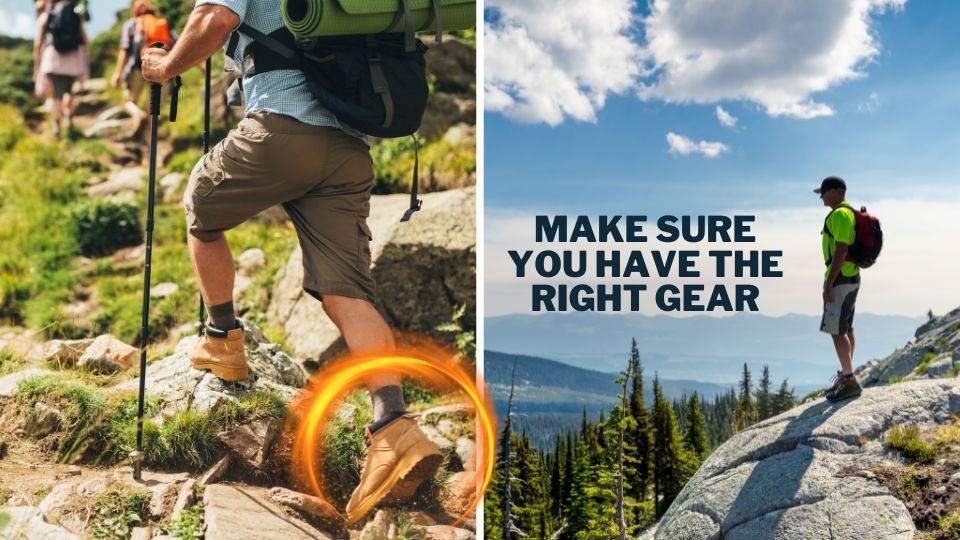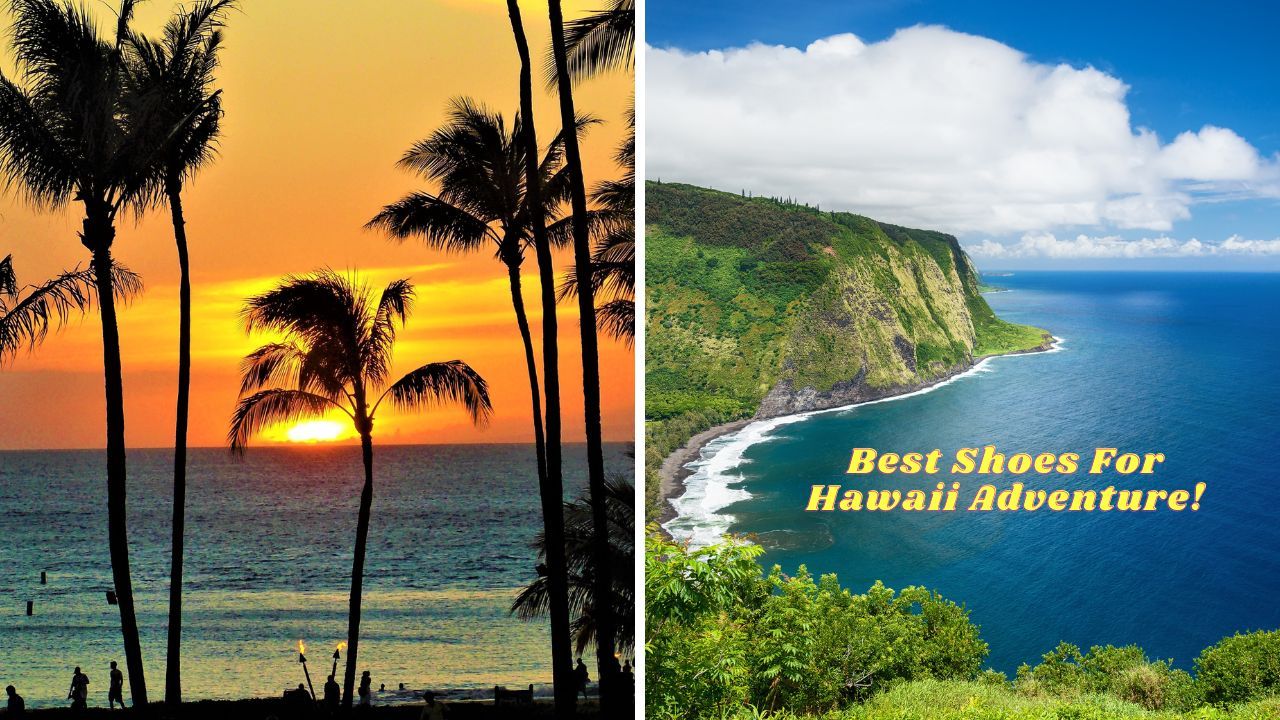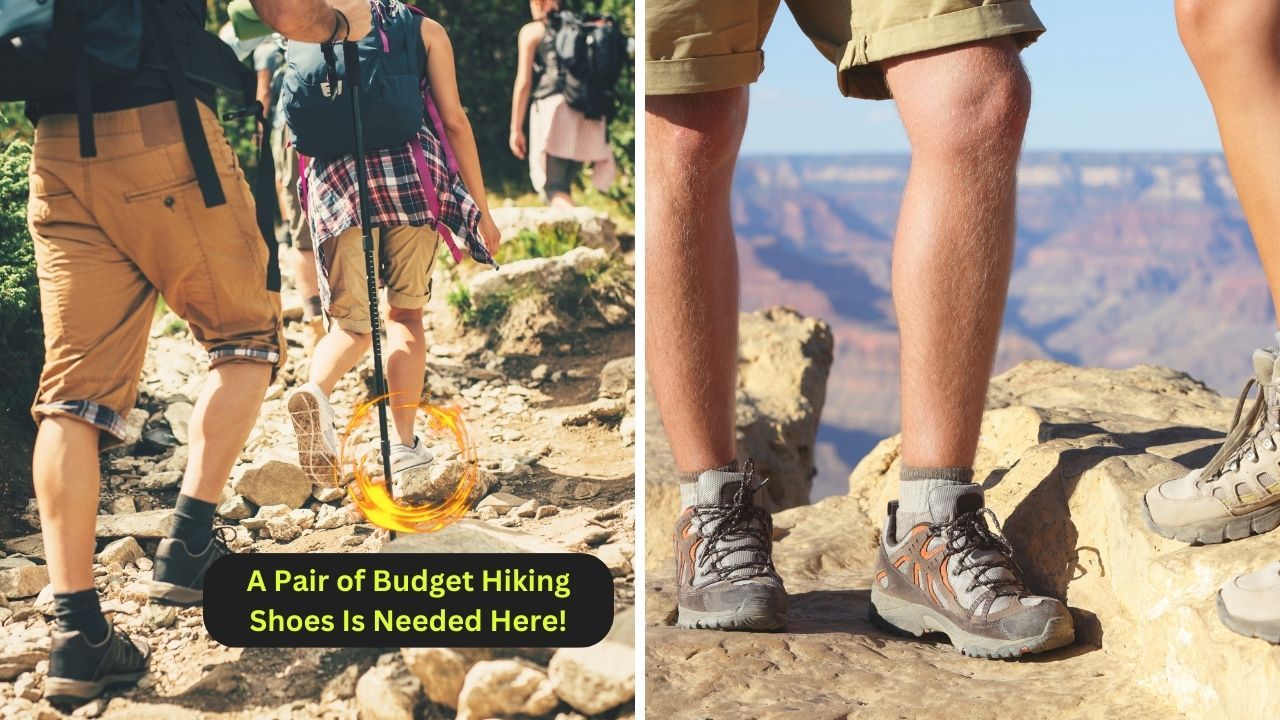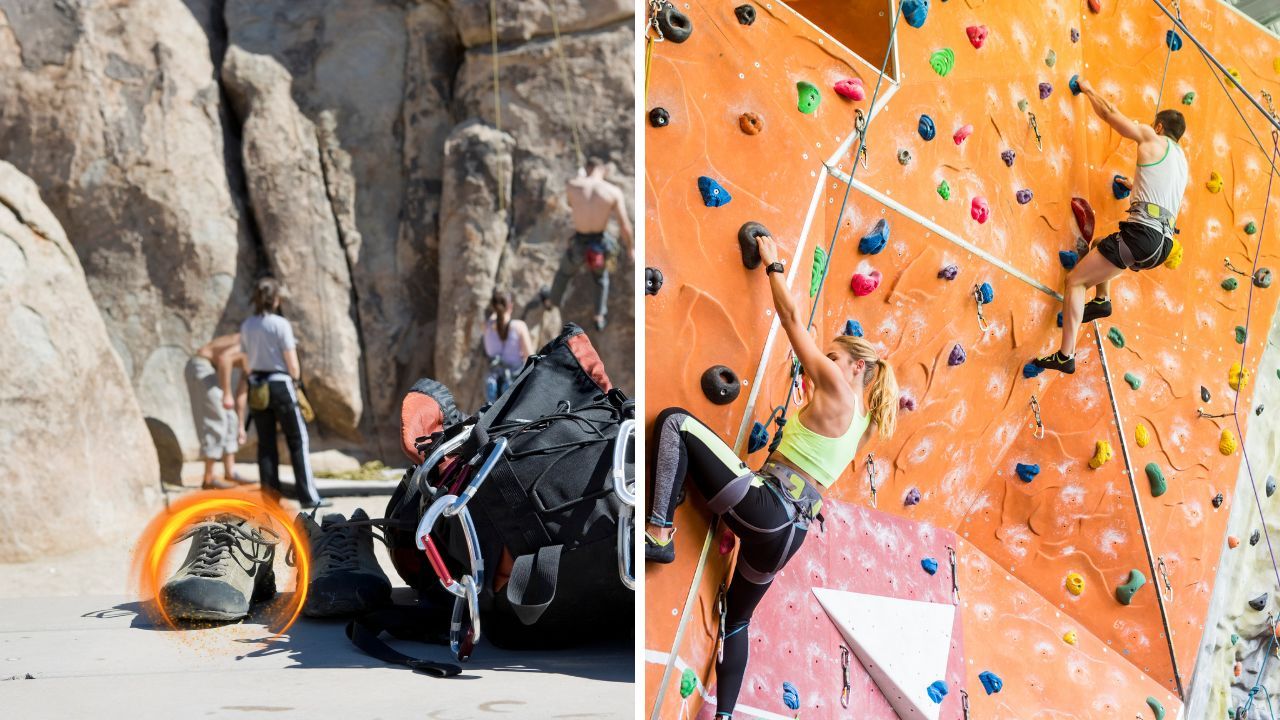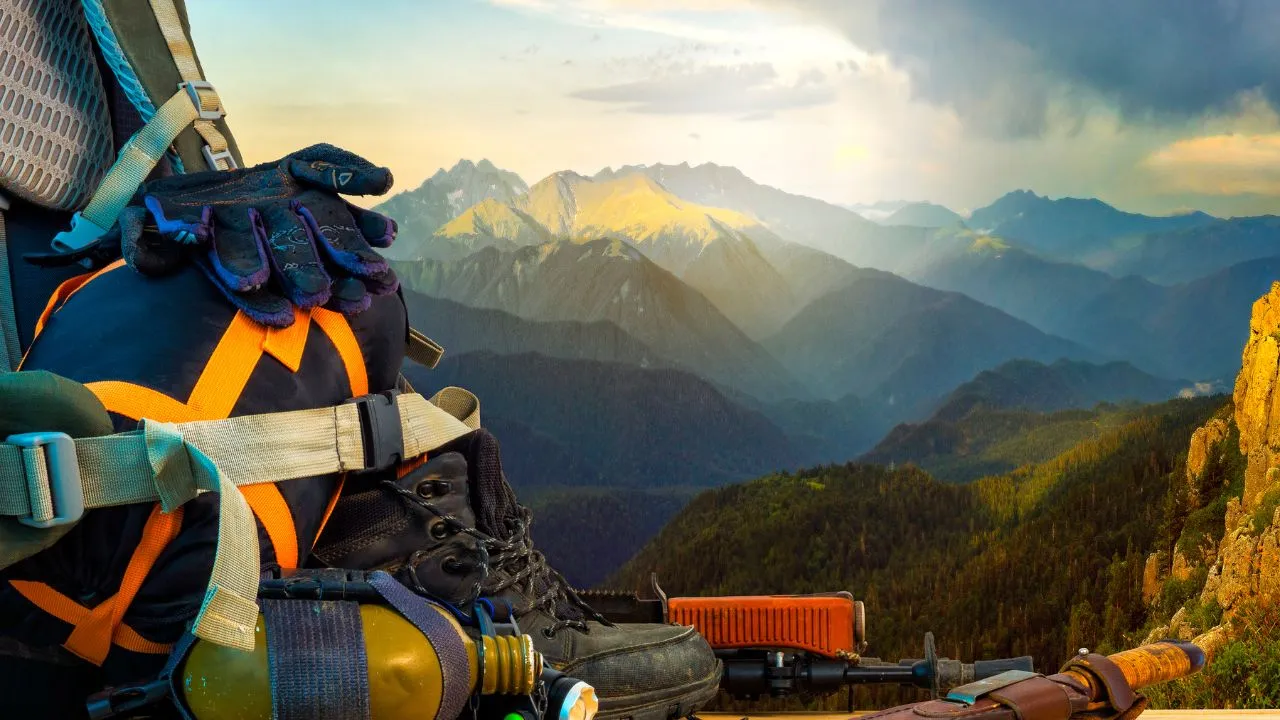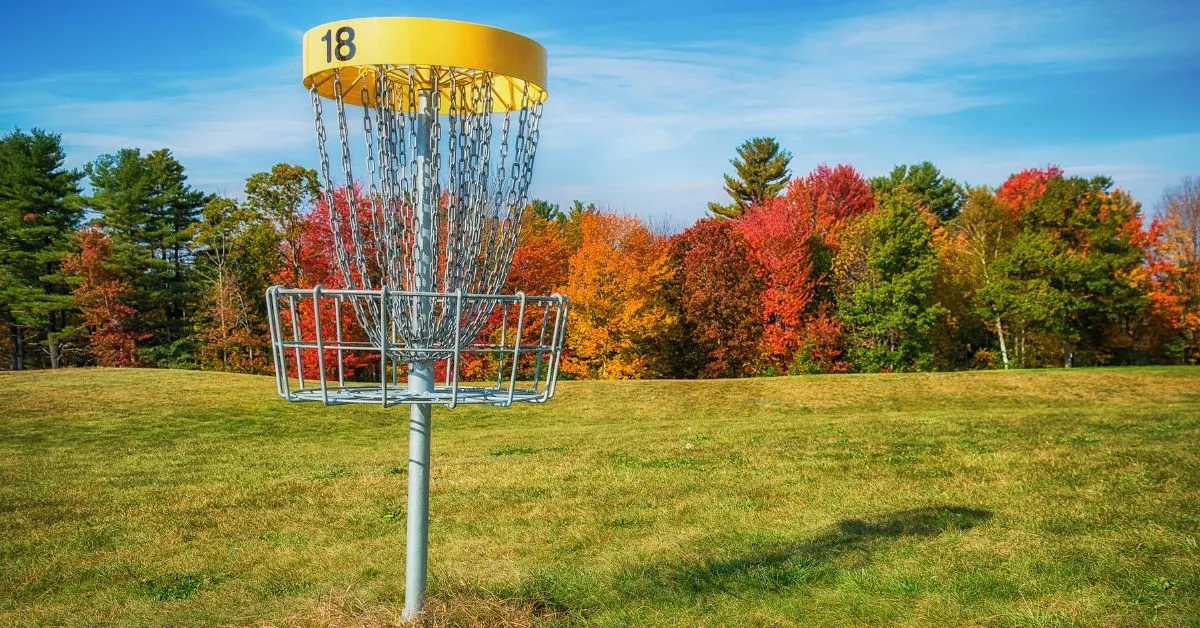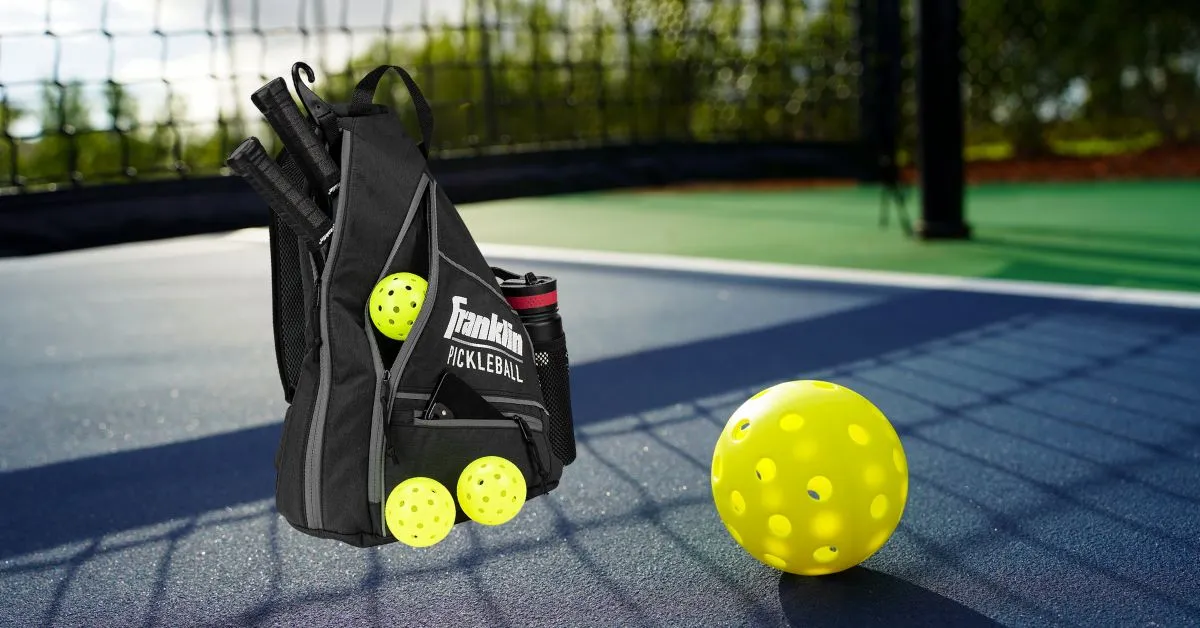Table of Contents
Heading out for a hike? Choosing the right attire can make or break your experience. From layering to selecting the perfect footwear, discover what to wear hiking and enjoy the great outdoors in comfort and style.
Hiking guide
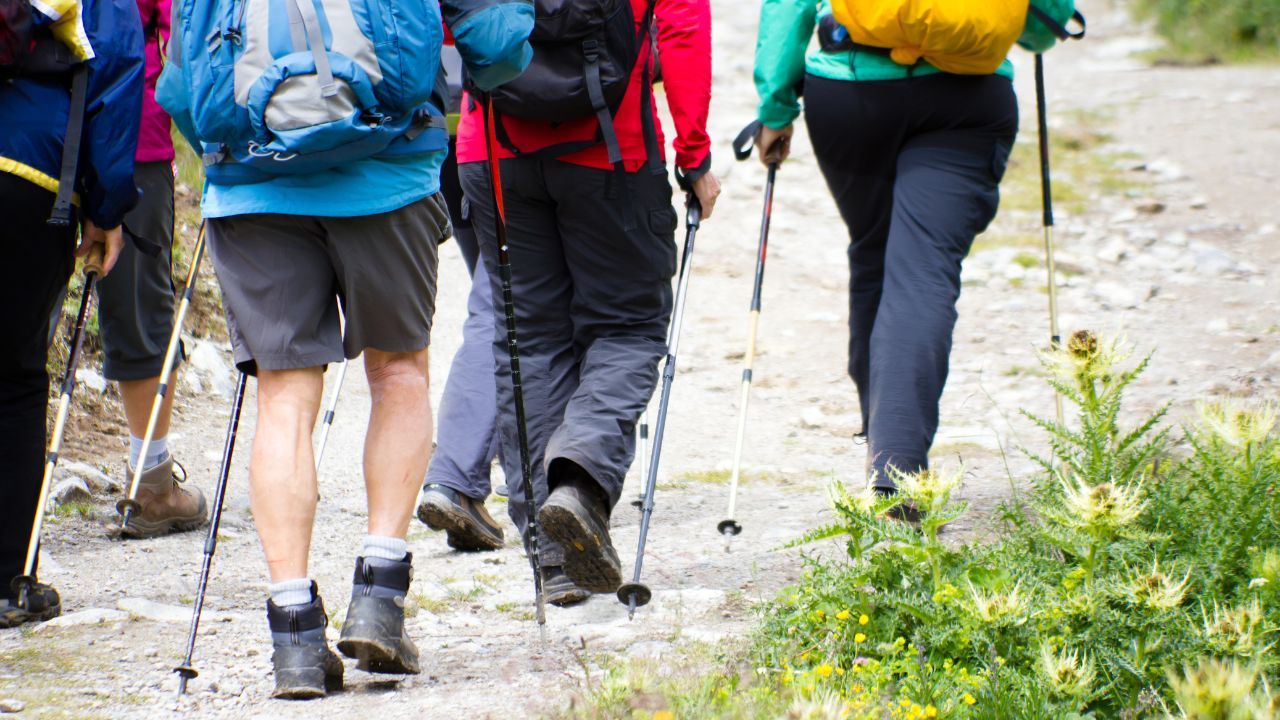
- Layering is essential for a successful hiking experience, involving a base layer to wick moisture, a mid layer for insulation and warmth, and an outer layer for protection from the elements.
- Select appropriate clothing & gear based on season. Lightweight fabrics in summer with protective items like hats/neck gaiters. Waterproof layers in fall & spring. Insulated jackets/Merino wool layers in winter.
- Pack essentials such as water & snacks along with camping equipment when backpacking, maintain regularly and store safely to ensure reliability of your gear.

Layering Essentials for Hiking
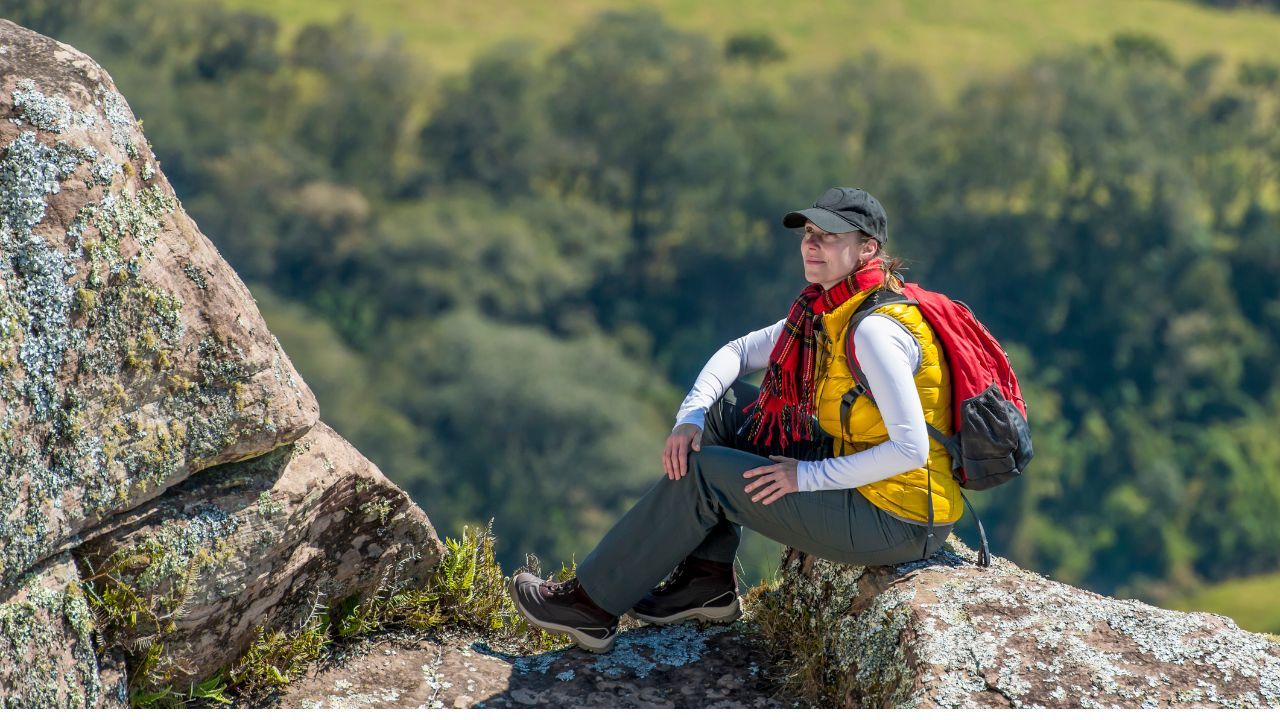
Layering is crucial when choosing what to wear hiking. It allows you to adapt to changing temperatures and conditions, ensuring you remain comfortable throughout your adventure. Typically, there are three layers to consider: the base layer, mid layer, and outer layer. Each layer serves a specific purpose, and selecting the appropriate materials and styles is essential for a successful hiking experience.
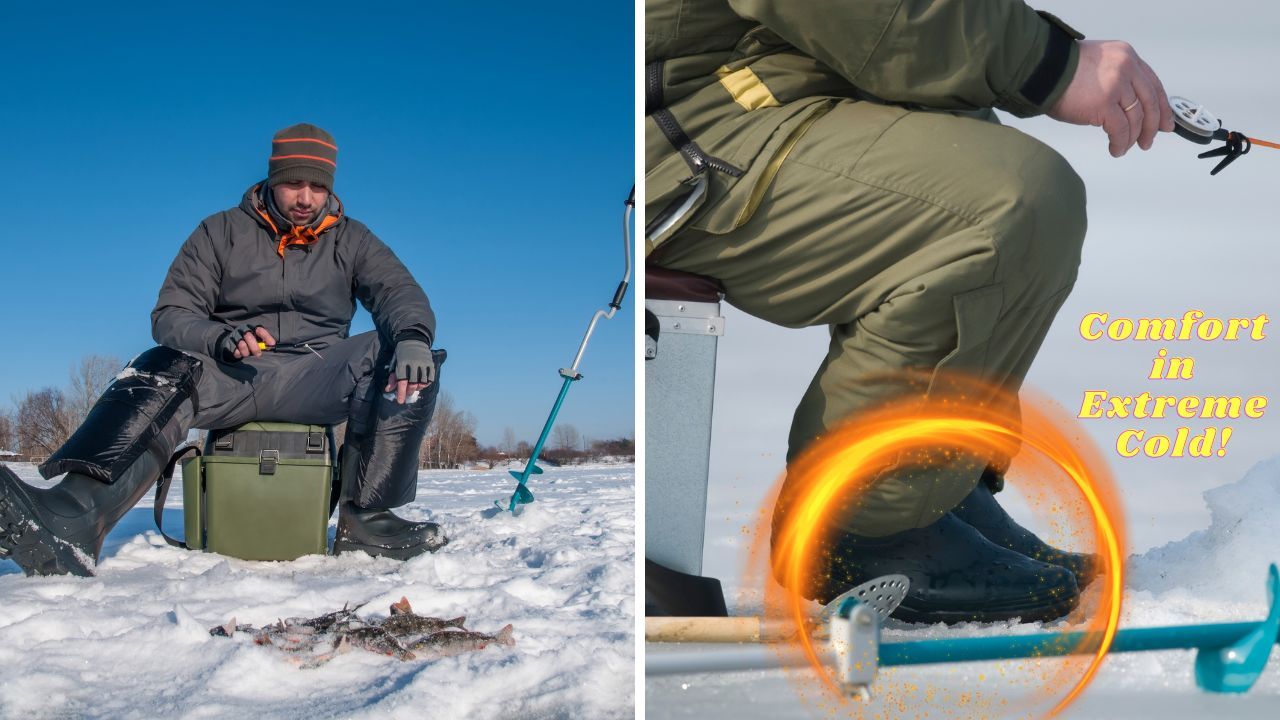
Understanding the purpose of each layer is key to building the best hiking clothing ensemble. The base layer wicks moisture away from your skin, the mid layer provides insulation and warmth, and the outer layer protects you from the elements. By combining these layers effectively, you are well-equipped for any weather conditions you may encounter on your hiking trip.
Base Layer: Moisture-Wicking Fabrics
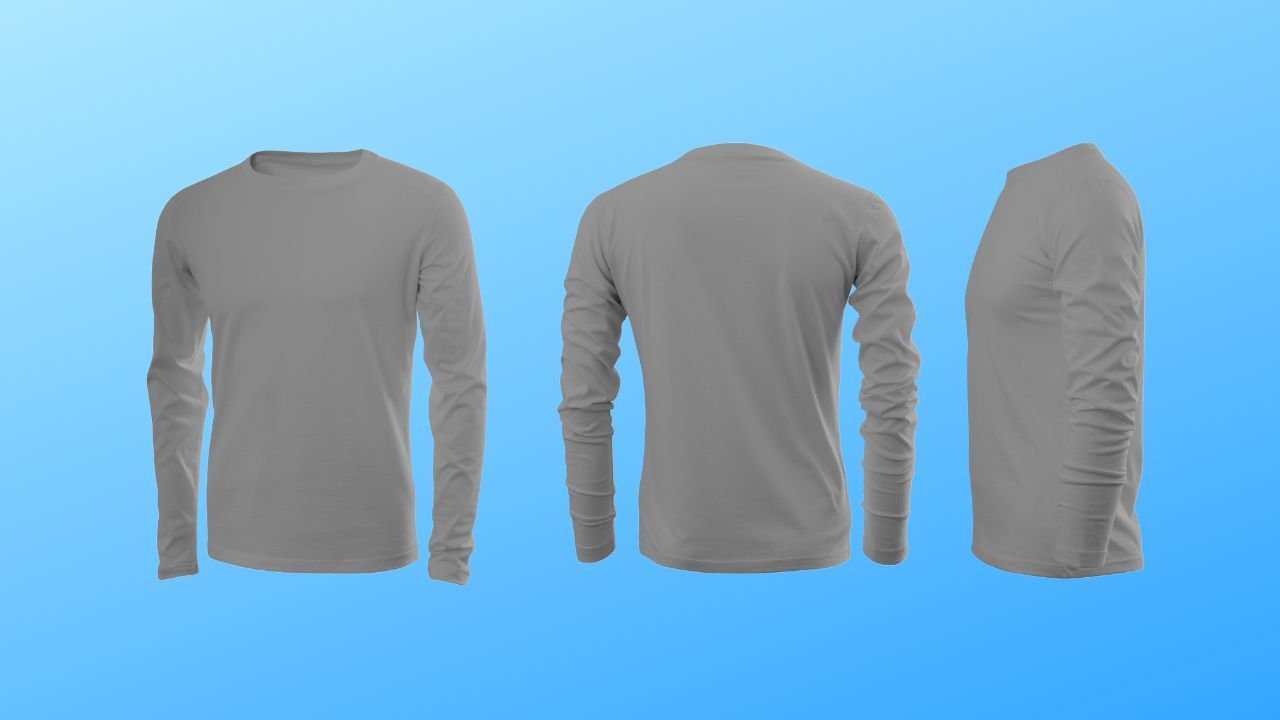
A good base layer is fundamental for any hiking attire. Materials like merino wool, polyester, and nylon are highly effective at wicking moisture away from your skin, ensuring you stay dry and comfortable during your hike. Avoid cotton shirts, as they tend to retain moisture, making you feel damp and cold – not an ideal scenario when you're out on the trail.
It's essential to choose a hiking shirt that is lightweight, breathable, and quick-drying. Long sleeves shirts made from moisture-wicking materials, such as polyester-nylon blends, are ideal for sun protection and maintaining a comfortable temperature. These fabrics keep you cool in warmer weather and warm in cooler temperatures, ensuring you're prepared for any climate.
Mid Layer: Insulation and Warmth

The mid layer's primary function is to provide warmth, acting as a barrier between your base layer and the elements. Common materials used for mid layers include fleece, wool, and synthetic down. These materials are designed to trap heat close to your body while still allowing for breathability.
Options for mid layers are vast, ranging from non-bulky fleece sweaters to insulated jackets. Choosing the right mid layer depends on factors such as weather conditions, personal preference, and the intensity of your hike. It's always a good idea to have a few different mid layer options to choose from, so you can adapt your hiking outfit as needed.
Outer Layer: Weather Protection
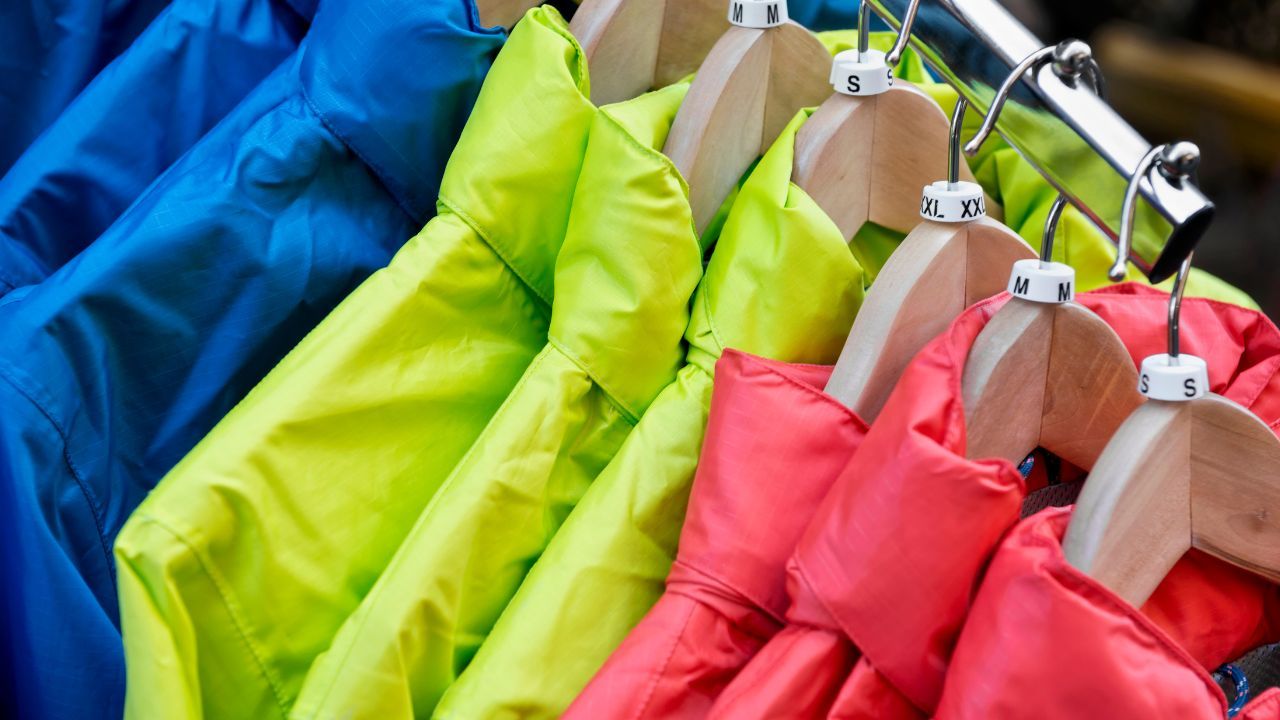
The outer layer is your first line of defense against the elements. Waterproof jackets, windbreakers, and rain pants are all essential components of your hiking apparel. An effective outer layer should be waterproof and windproof, shielding you from rain and keeping you warm in windy conditions.
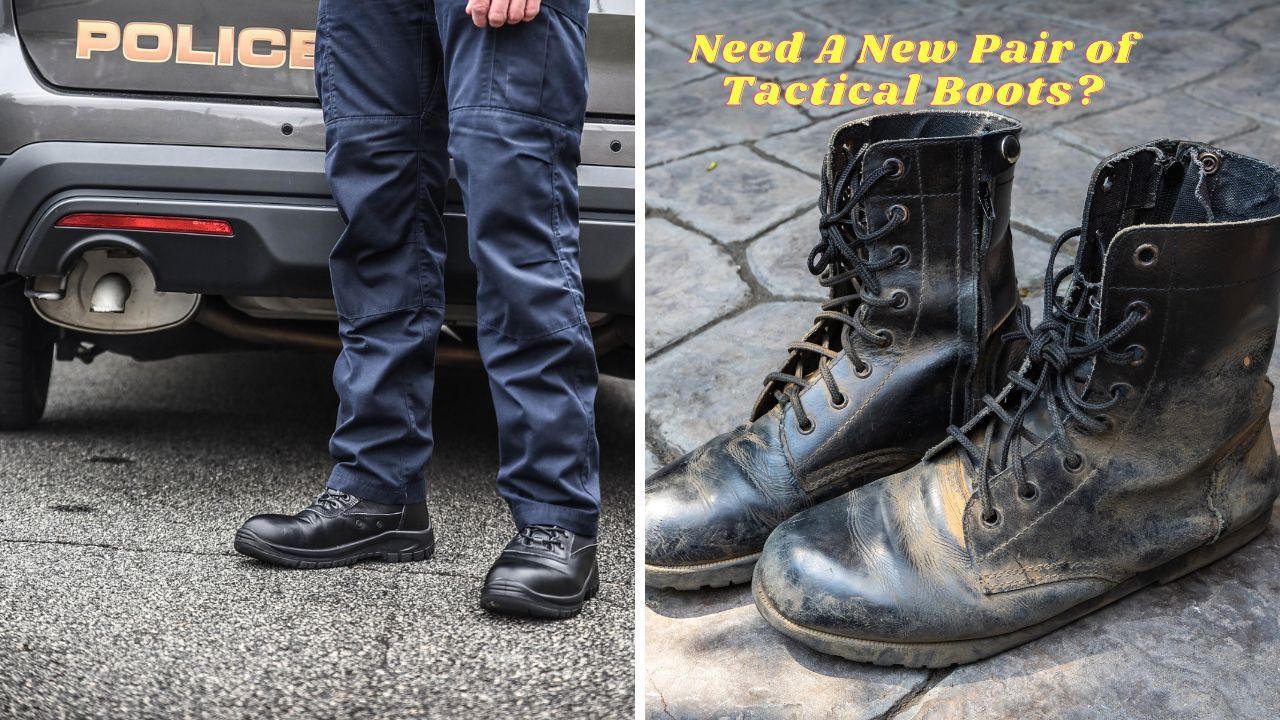
When selecting a hiking jacket, consider the season and climate. In summer, opt for a lightweight, breathable rain jacket that can be easily packed away when not in use. For colder months, look for insulated jackets that provide warmth and protection from snow and ice.
Remember, a well-chosen outer layer can make all the difference in your overall comfort and enjoyment of your hike.
Seasonal Hiking Attire
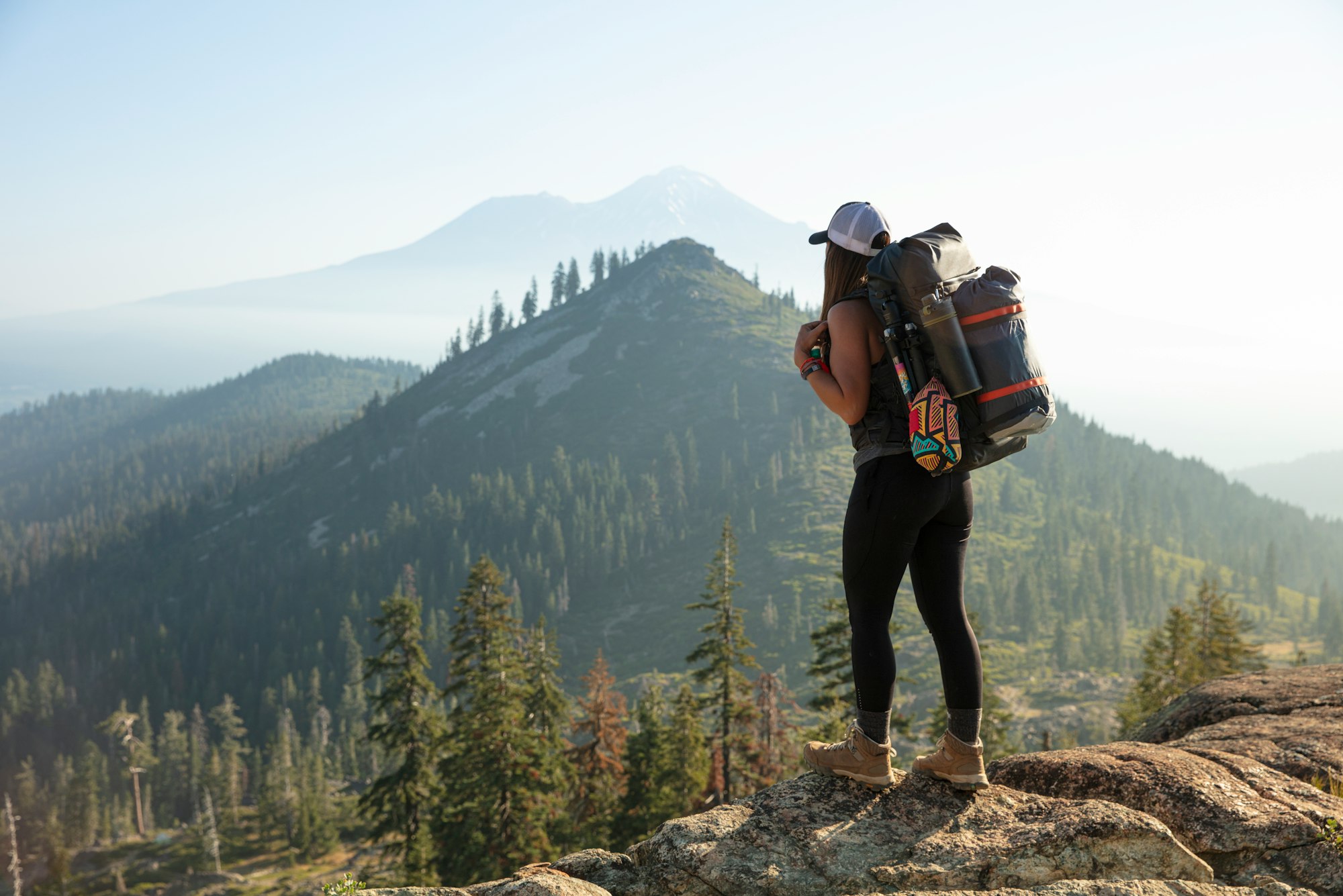
Dressing appropriately for the season is crucial for a comfortable and enjoyable hike. From lightweight summer hiking clothes to insulated winter gear, understanding the specific requirements of each season will ensure you're well-prepared for any conditions you may face on the trail.
In this section, we'll cover the essentials for summer, fall, and spring hiking attire, as well as the necessary gear for a winter hike. No matter the season, always remember the importance of layering and adapting your outfit to suit the conditions.
Summer Hiking Clothes
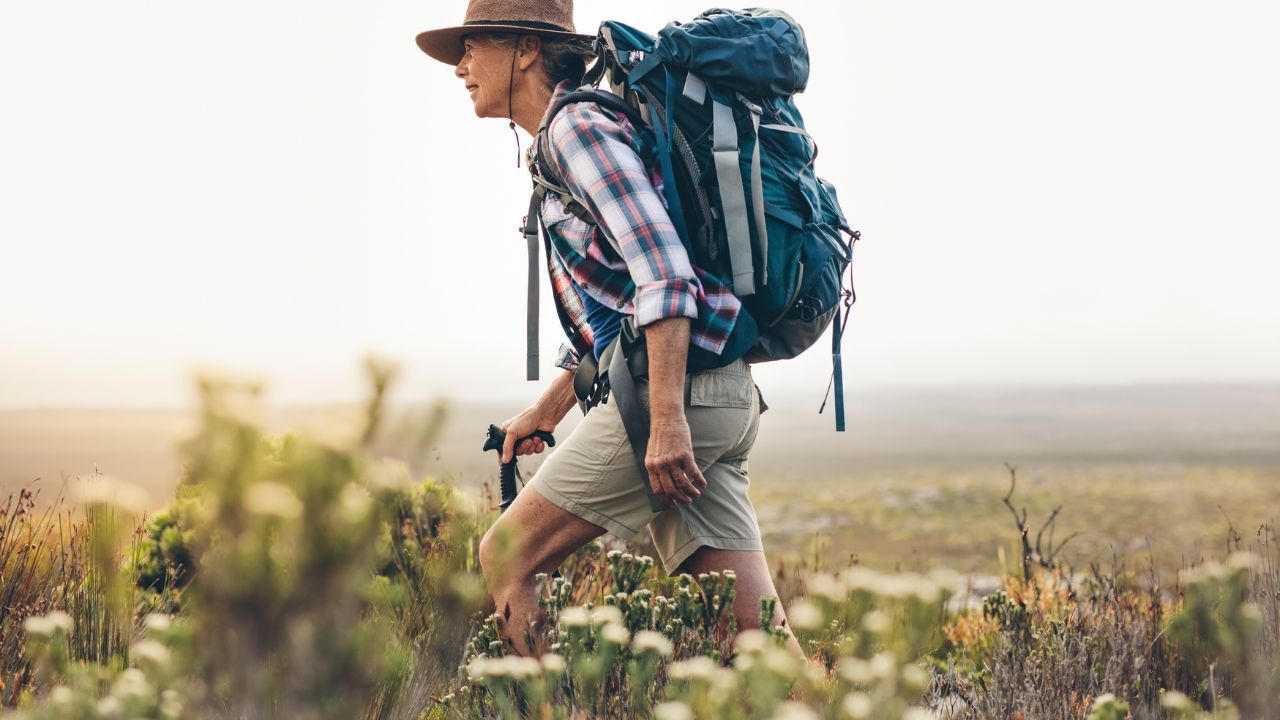
For summer hikes, lightweight and breathable clothing is key. Opt for synthetic materials like polyester or nylon, which wick away moisture and keep you cool. Shorts or hiking pants, a breathable shirt, and seamless socks are all recommended for warm-weather hikes.
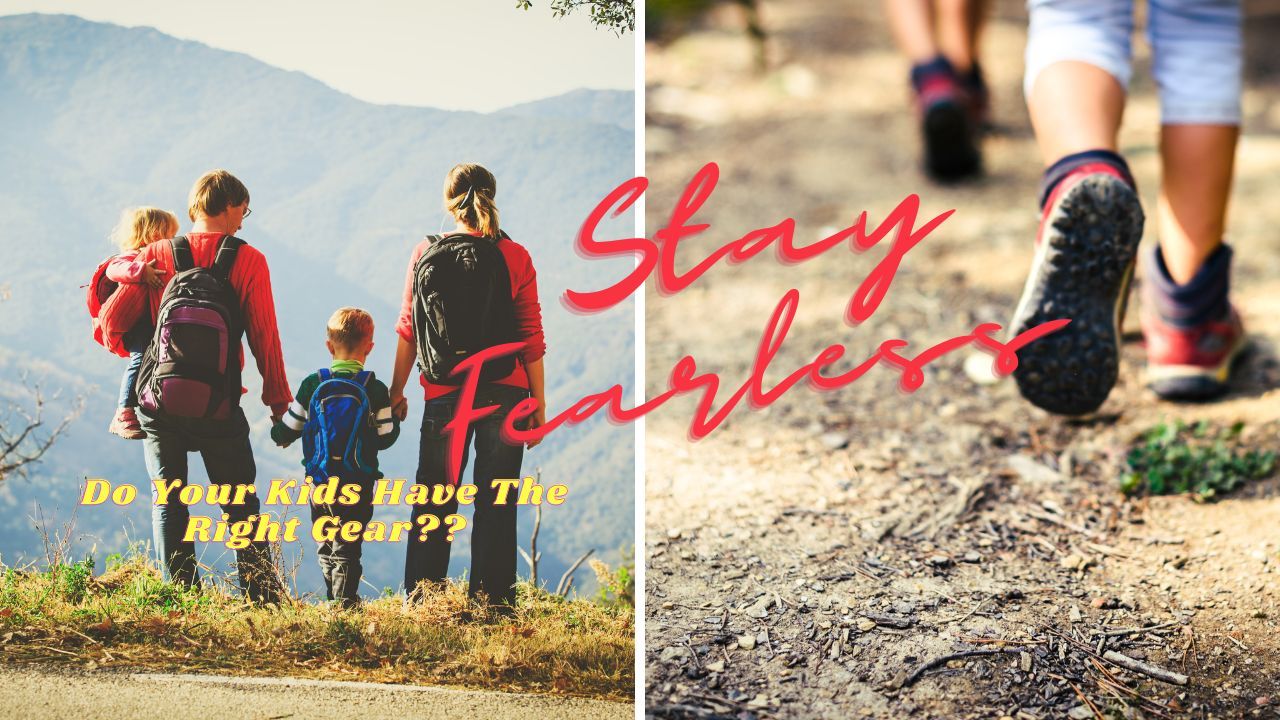
Don't forget sun protection. A wide-brimmed hat and a neck gaiter can shield you from harmful UV rays and help regulate your body temperature. Keep in mind that even on hot days, it's essential to cover exposed skin to prevent sunburn and avoid wearing dark colors that can absorb heat.
Fall and Spring Hiking Outfits
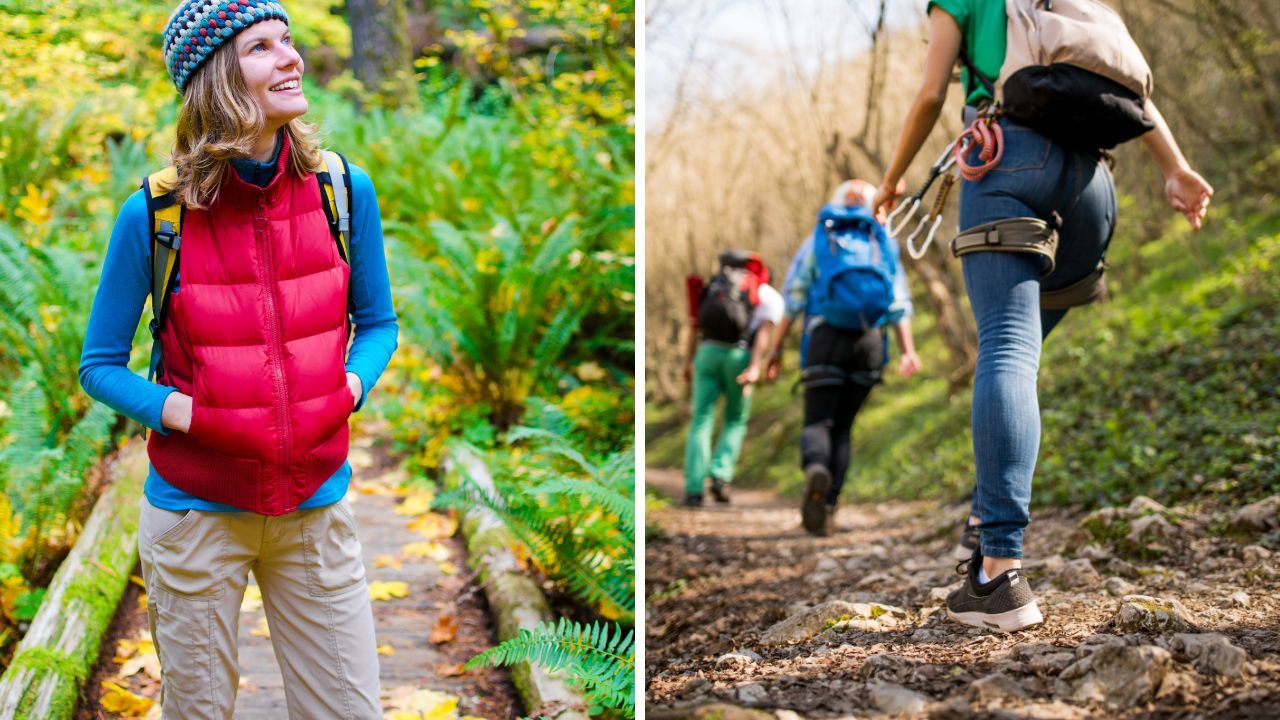
Fall and spring hikes call for versatile clothing that can adapt to changing temperatures and conditions. Layering is crucial during these transitional seasons, so opt for lightweight, breathable garments that can be easily added or removed as needed.
A waterproof outer layer is a must for fall and spring hikes, as unexpected showers are common. Consider long-sleeve shirts, sweaters, and leggings to provide warmth and coverage while still allowing for freedom of movement.
And remember, the right hiking attire can make all the difference when it comes to staying comfortable and enjoying your time on the trail.
Winter Hiking Gear
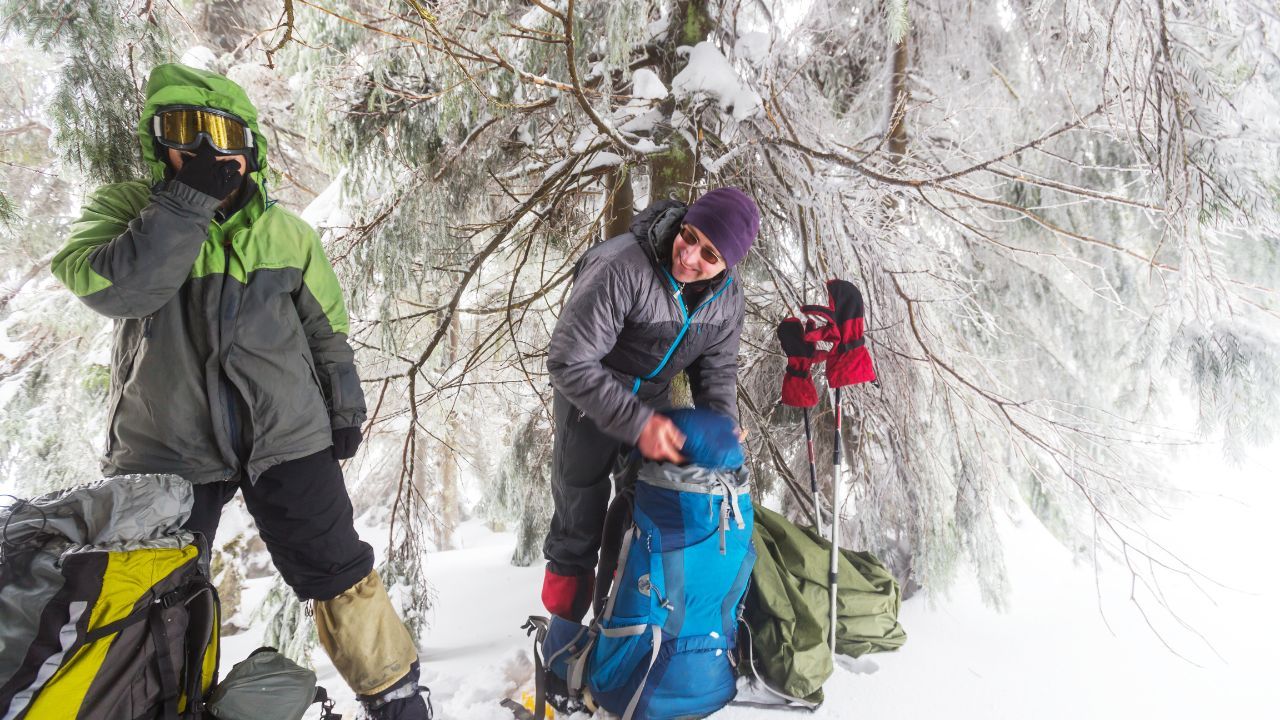
Winter hiking requires specialized gear to keep you warm and dry in cold, snowy conditions. Insulated jackets, warm base layers, and waterproof pants are essential for a comfortable and safe winter hike. Merino wool is an excellent material for cold-weather attire, as it provides insulation, wicks moisture, and remains odor-resistant.

Don't forget the importance of accessories in winter hiking. Insulated gloves, mid or high-cut wool socks, and sturdy hiking boots are necessary for navigating icy terrain. Additionally, consider packing crampons or microspikes for added traction on slippery surfaces.
With the right gear, you can conquer any winter hike with confidence and ease.
Women's Hiking Bottoms
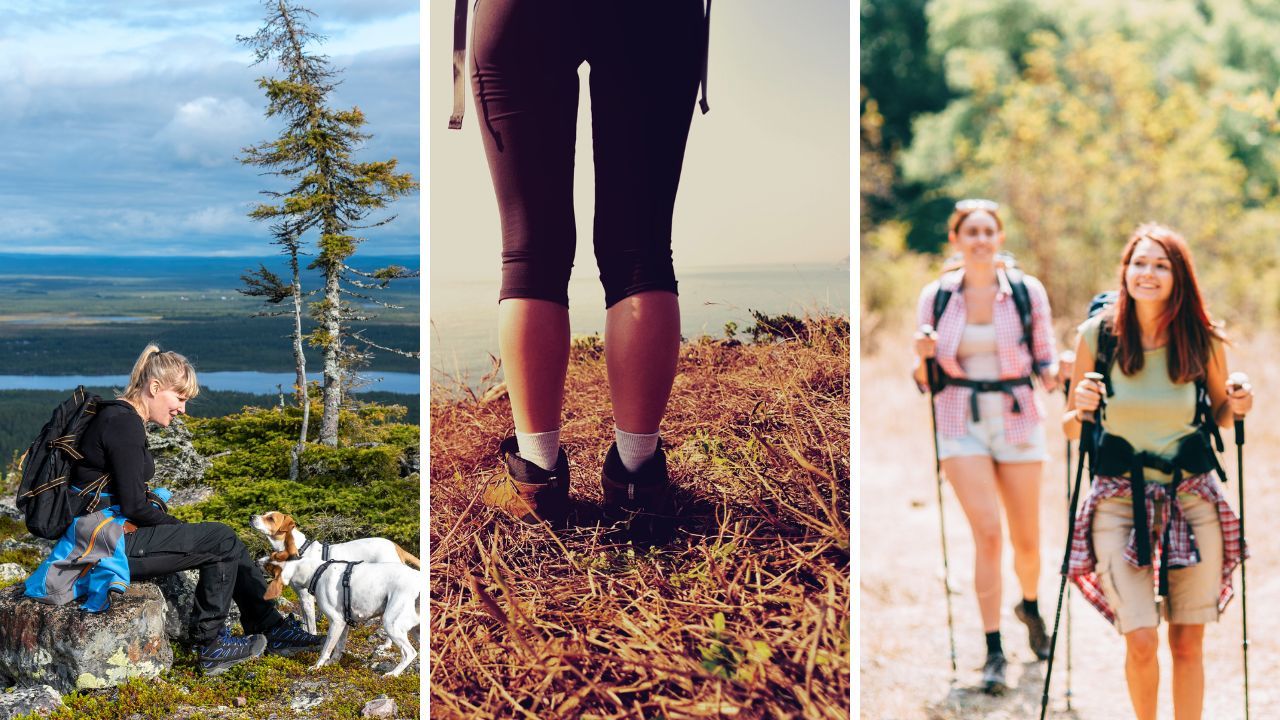
Choosing the right hiking bottoms is crucial for comfort and protection on the trail. Women's hiking bottoms come in various styles, including hiking pants, leggings, and shorts. Each option offers its own benefits and drawbacks, so it's essential to select the best fit for your needs and preferences.
In this section, we'll explore the different types of women's hiking bottoms and provide recommendations to help you find the perfect pair for your next adventure. Whether you prefer the coverage of hiking pants or the freedom of shorts, you'll be well-equipped for any trail with the right hiking bottoms.
Hiking Pants
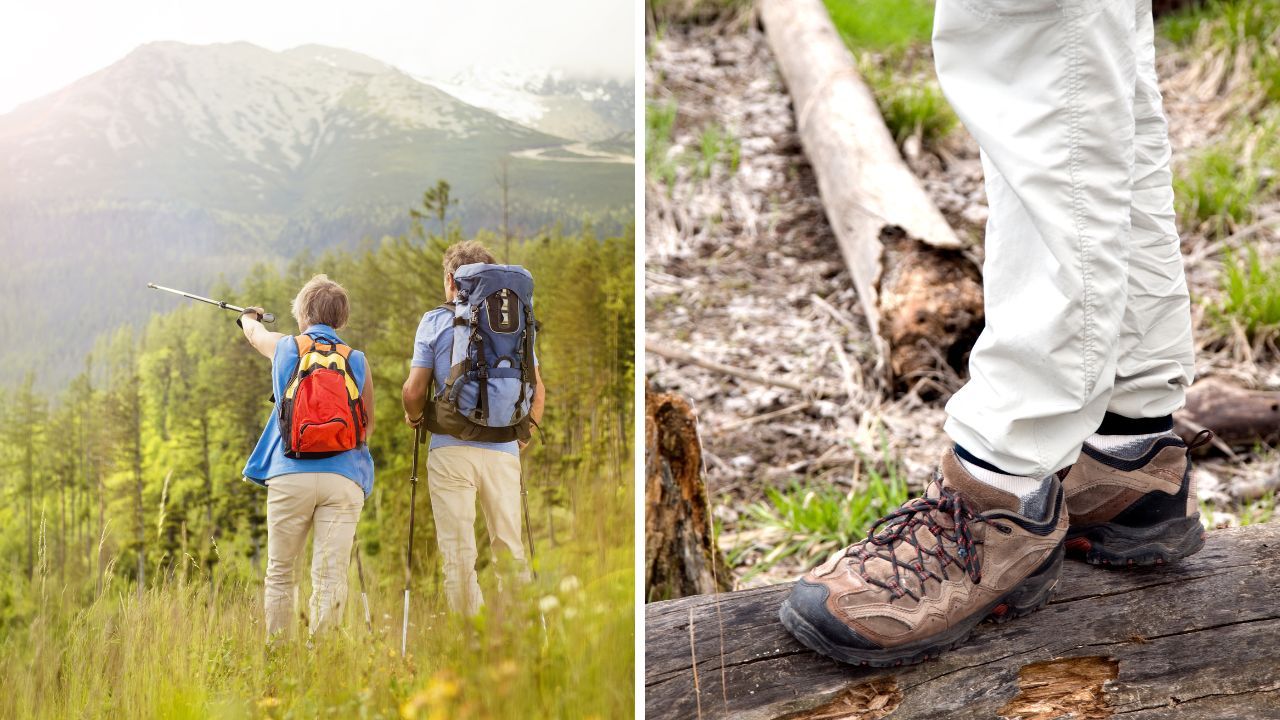
Hiking pants provide more coverage and protection than shorts, making them a popular choice for many outdoor enthusiasts. They are typically made from lightweight, quick-drying, and breathable materials like nylon or polyester, which are perfect for various trail conditions.
While hiking pants offer many benefits, they can also be bulky and uncomfortable for some. It's important to find a pair that provides the right balance of comfort, durability, and protection for your specific needs. Look for features such as a higher waistline, a gusseted crotch, and articulated knees for added mobility, as well as abrasion-resistant, water-resistant, and quick-drying capabilities.
Hiking Leggings
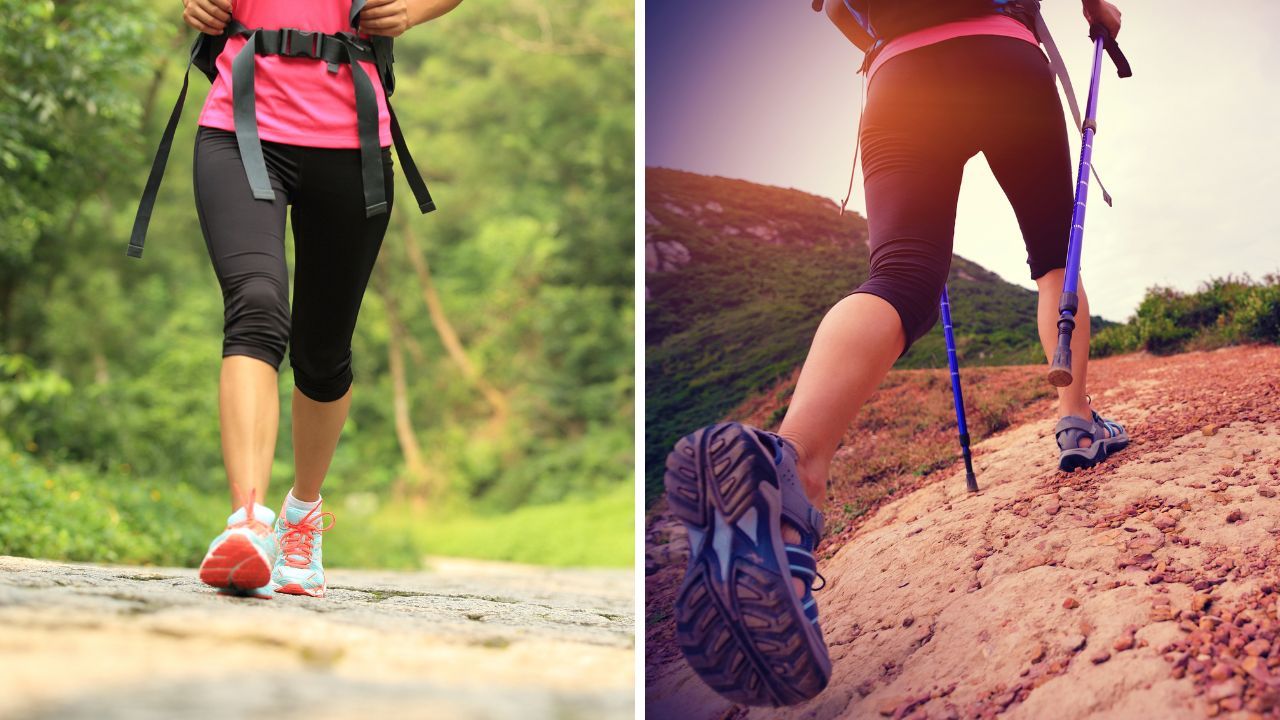
Hiking leggings offer a lightweight and comfortable alternative to traditional hiking pants. Made from stretchy, moisture-wicking materials like polyester and nylon, they provide a snug fit that moves with you on the trail.
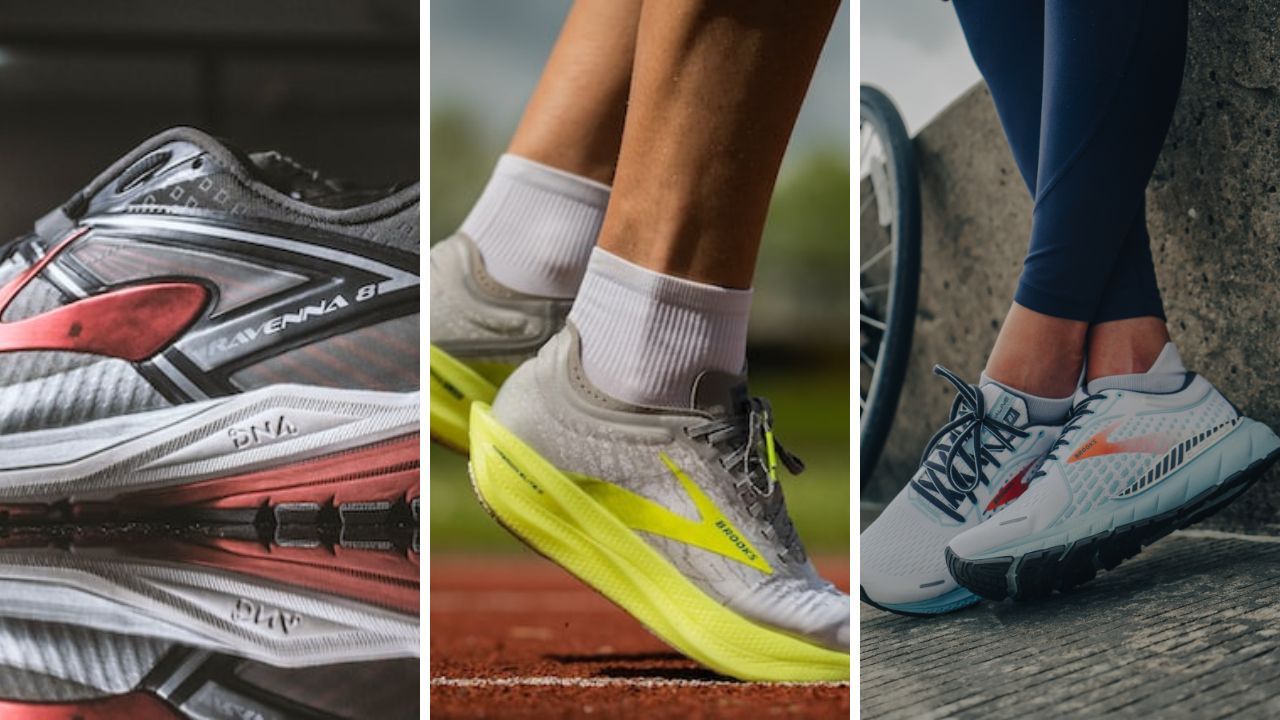
While hiking leggings are incredibly comfortable, they often lack the pockets and durability found in hiking pants. That being said, there are many high-quality hiking leggings available from reputable brands like lululemon, prAna, and Brooks. These leggings are designed for outdoor activities and provide the perfect balance of comfort, performance, and protection.
Hiking Shorts
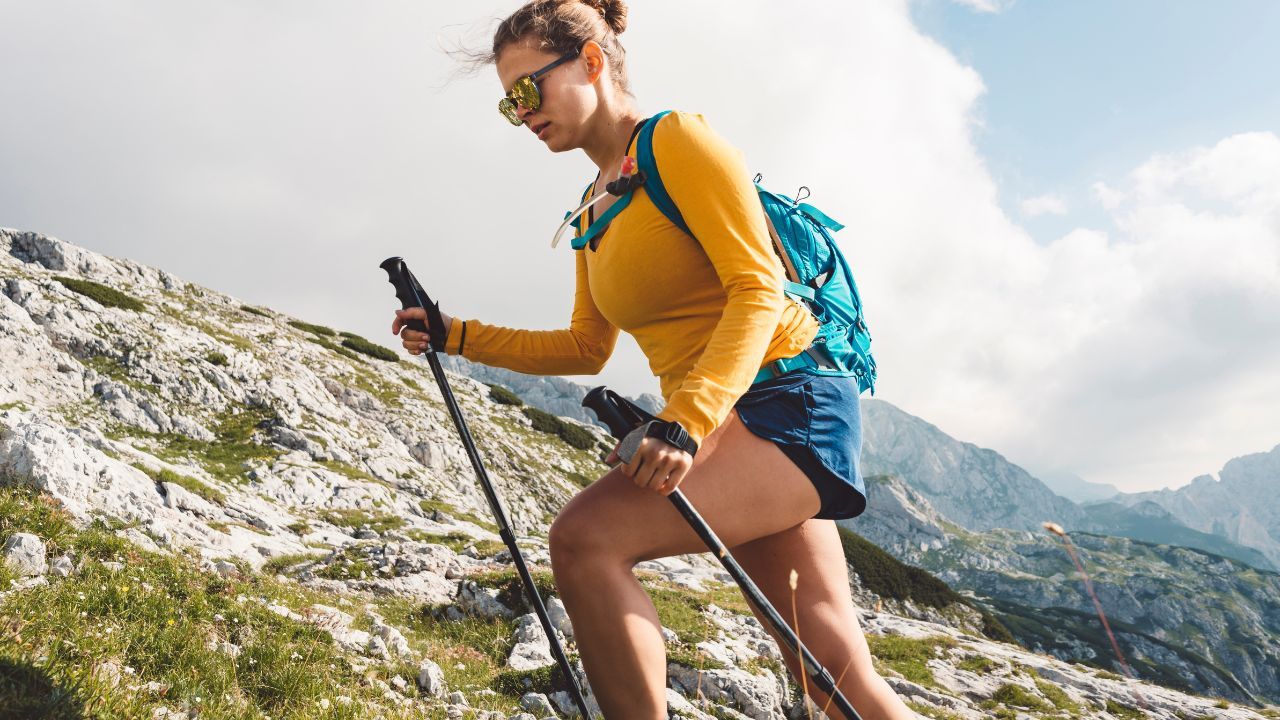
For those who prefer the freedom and mobility of shorts, hiking shorts are an excellent option. They are ideal for hot days and less demanding trails, allowing for increased ventilation and comfort. Spandex or yoga shorts are particularly popular among hikers, as they provide a snug fit without restricting movement.
While hiking shorts can be a great choice for certain hikes, keep in mind that they provide less coverage and protection compared to pants or leggings. Be mindful of the terrain and weather conditions when choosing your hiking bottoms, and always prioritize your safety and comfort on the trail.
Hiking Footwear and Accessories
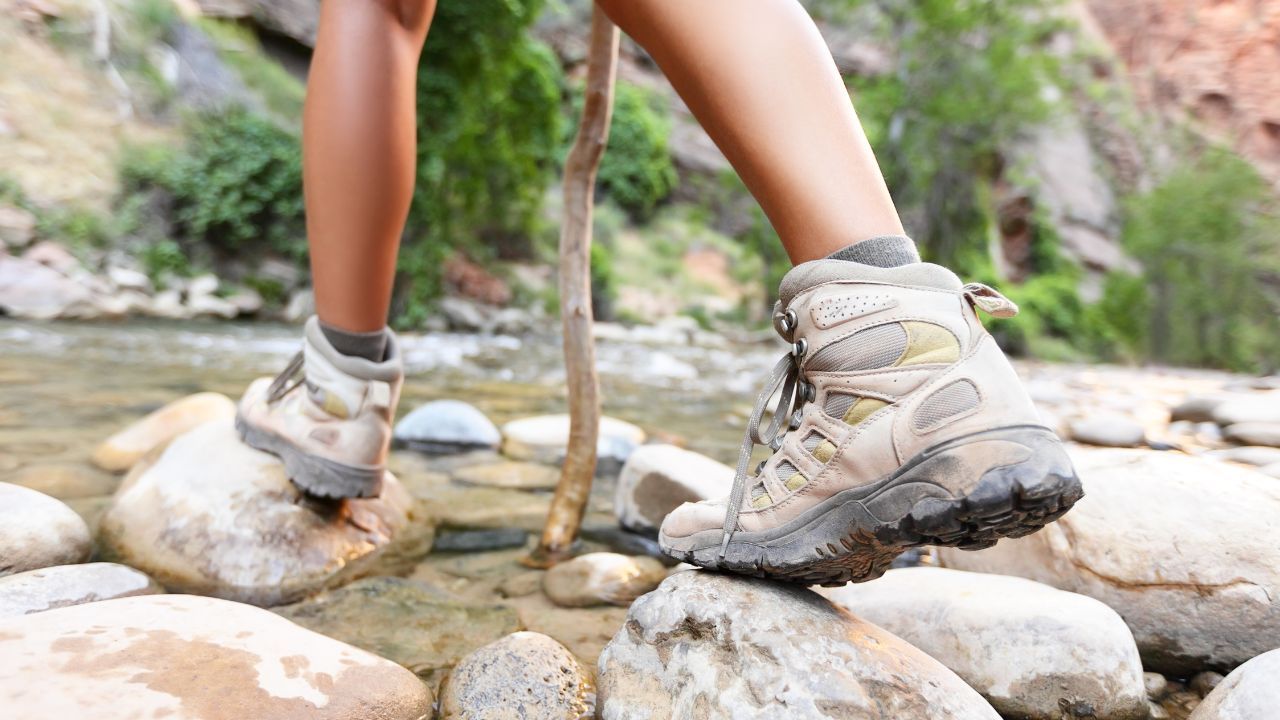
Selecting the right hiking footwear is crucial for a comfortable and enjoyable hike. Your choice of shoes or boots will depend on the type of hike, the terrain, and your personal preferences. In addition to footwear, there are several essential hiking accessories that can significantly enhance your hiking experience.
In this section, we'll discuss the differences between hiking shoes and boots, the importance of proper hiking socks, and the role of additional accessories such as hats, sunglasses, and trekking poles. Equip yourself with the right gear, and you'll be ready to tackle any trail with confidence.
Hiking Shoes vs. Boots
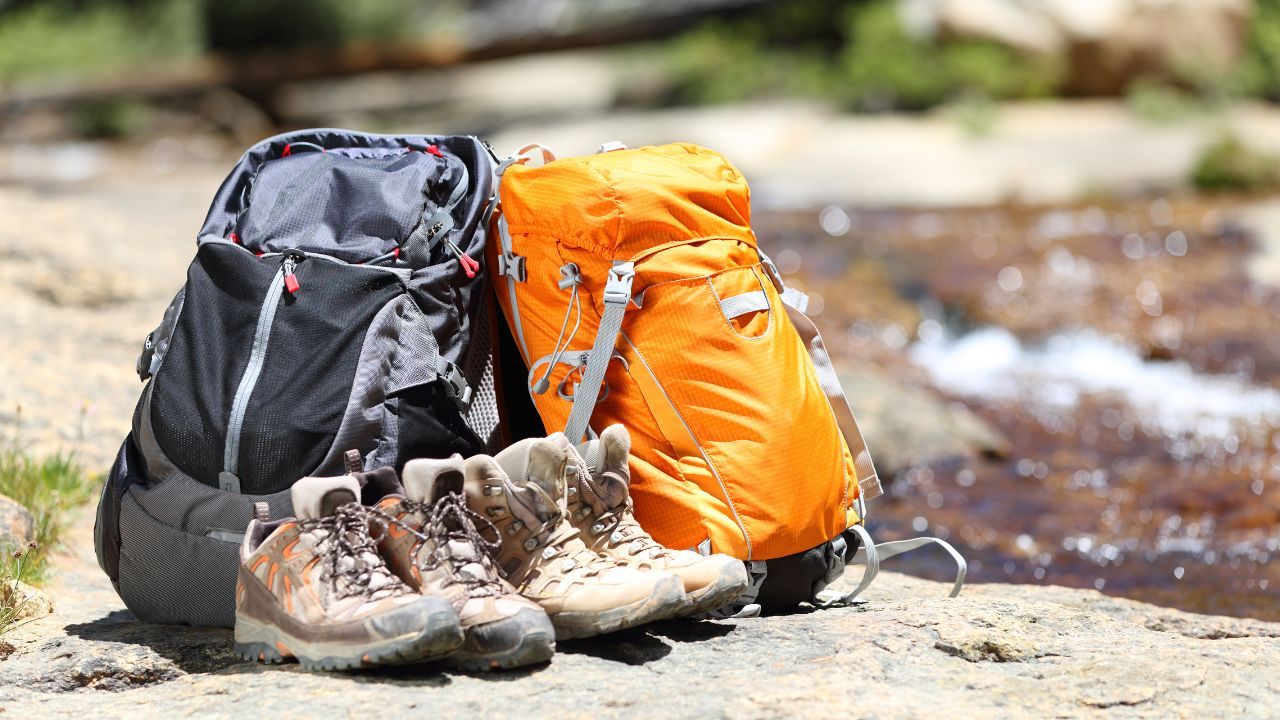
Hiking shoes are lightweight and provide good grip on rocks, making them an excellent choice for less demanding hikes. However, they often lack the ankle support and protection offered by hiking boots. When choosing between shoes and boots, consider the terrain and the level of support you require.
Hiking boots, on the other hand, provide more support and protection, particularly around the ankle. They are ideal for more challenging hikes or when carrying a heavier load. Keep in mind that hiking boots may require a break-in period to ensure optimal comfort during your hike.
Ultimately, the best hiking footwear for you will depend on your personal needs and preferences.
Hiking Socks
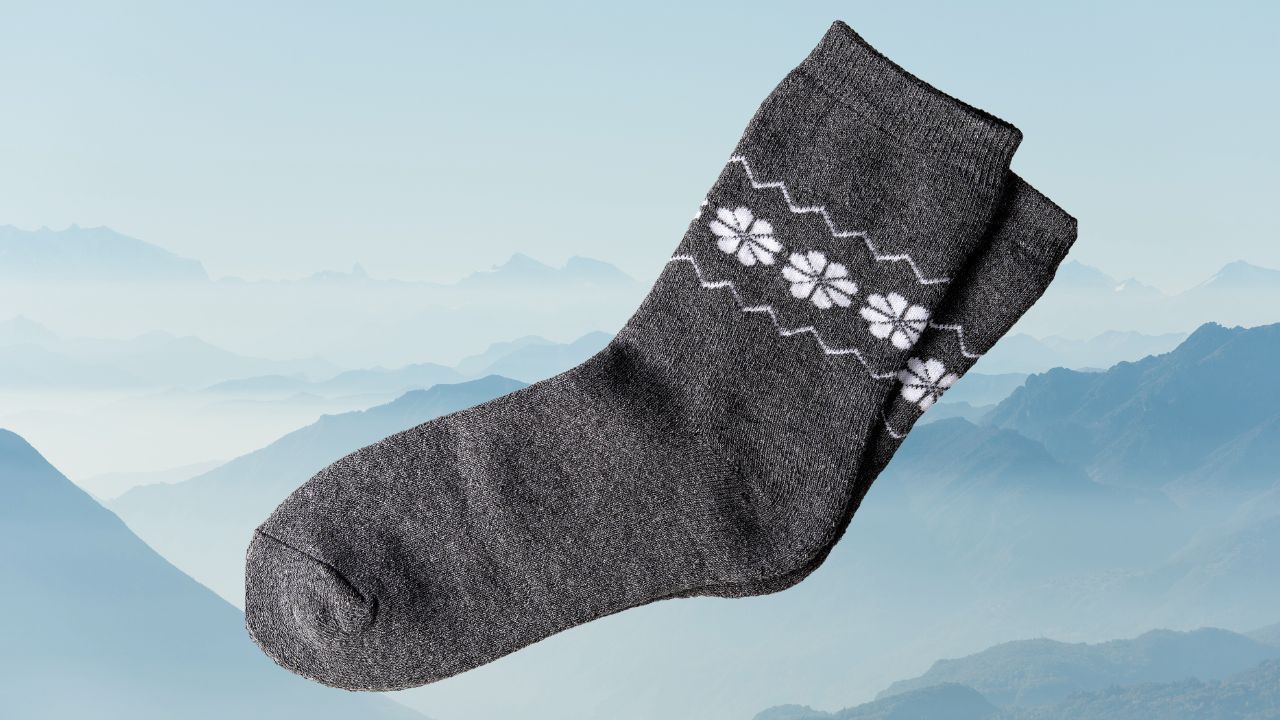
The right hiking socks can make a world of difference in your overall comfort on the trail. Wool socks, particularly merino wool, are ideal for hiking, as they provide cushioning, moisture-wicking properties, and can help prevent blisters. Darn. Tough is a preferred brand for high-quality wool hiking socks.
When choosing hiking socks, consider factors such as cushioning, breathability, and fit. A well-fitted sock can help prevent blisters and ensure your feet stay comfortable throughout your hike. Don't underestimate the importance of investing in a good pair of socks – your feet will thank you.
Additional Accessories
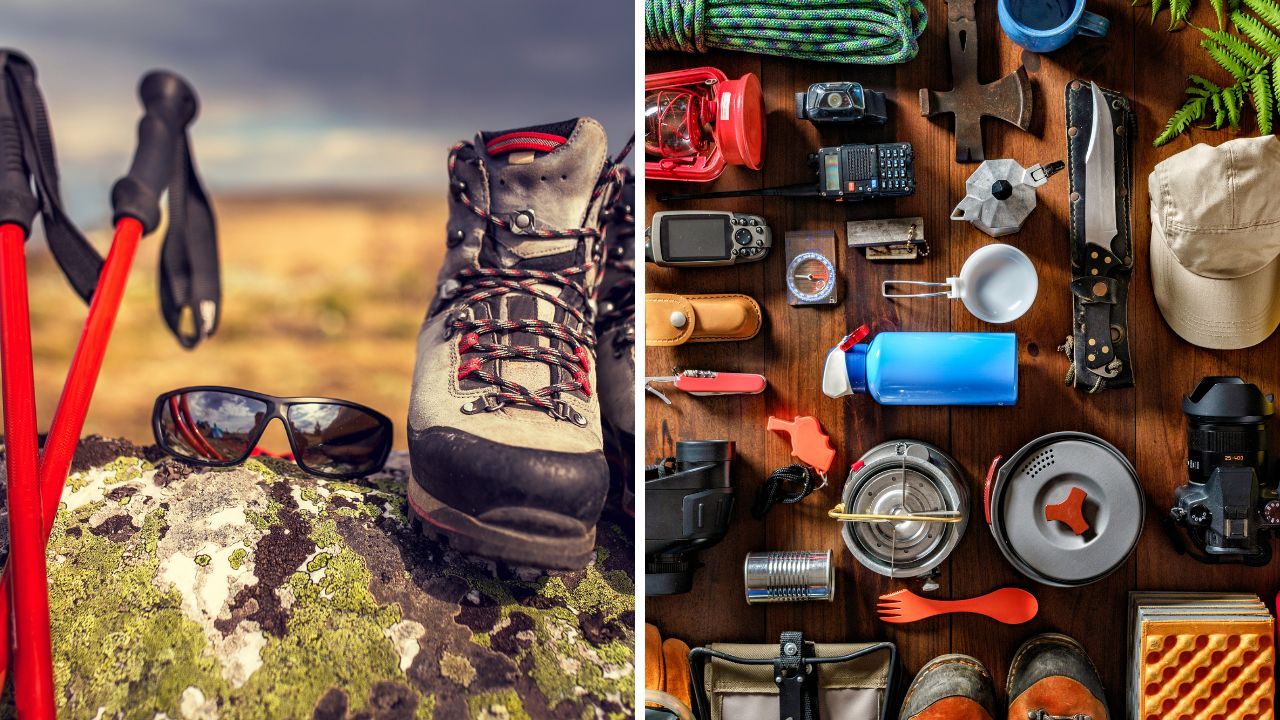
Additional accessories are crucial for a safe and comfortable hike. Items such as hats, sunglasses, and trekking poles can drastically improve your experience on the trail. A wide-brimmed hat or a neck gaiter can shield you from the sun, while sunglasses protect your eyes from harmful UV rays and glare.
Trekking poles are valuable tools that help reduce pressure on your knees and provide stability on uneven terrain. They can also assist in navigating obstacles such as river crossings or steep inclines. Investing in quality hiking accessories can make a huge difference in your overall enjoyment of the great outdoors.
Women's Hiking Tops and Undergarments

Choosing the right hiking tops and undergarments is essential for comfort and performance on the trail. Women's hiking tops include options such as merino hiking t-shirts, synthetic hiking t-shirts, and long sleeve hiking shirts. Undergarments, like briefs, boxer briefs, bikinis, and thongs, are typically made from merino wool or synthetic materials for moisture-wicking and odor resistance.
In this section, we'll explore the various options for women's hiking tops and undergarments, providing recommendations to help you find the perfect combination for your next hike. Stay comfortable and dry on the trail with the right hiking tops and undergarments.
Hiking Shirts and Tees

A moisture-wicking hiking shirt is essential for staying comfortable on the trail. The Patagonia Capilene Cool T-Shirt is a popular choice, offering 50+ UPF sun protection, moisture-wicking, odor resistance, and a non-clingy fit. This shirt is available in both short sleeve and long sleeve versions, depending on your preferences and sun protection needs.
For those who prefer tank tops, the lululemon Sculpt Tank Top and the lululemon Swiftly Relaxed Muscle Tank Top are excellent options. However, be aware that wearing a tank top while hiking may cause chafing on your shoulders due to the weight of your backpack. Always prioritize comfort and functionality when choosing your hiking shirts and tees.
Sports Bras for Hiking
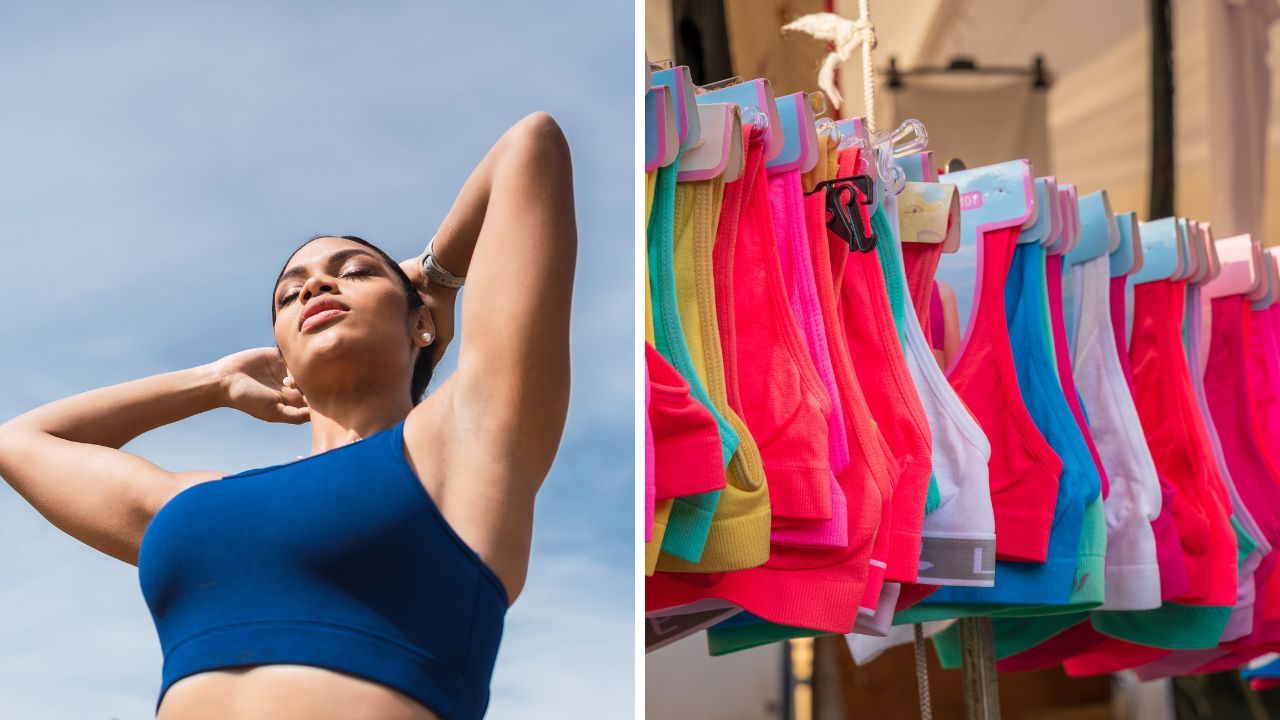
A sports bra is essential for providing support and comfort during your hike. Lululemon sports bras offer a wide range of sizes and support levels to suit your needs. These bras are designed to be lightweight and breathable, ensuring all-day comfort on the trail.
When selecting a sports bra for hiking, look for features such as wider straps and a supportive band to prevent chafing and discomfort. Remember, the right sports bra can make all the difference in your overall comfort and enjoyment of your hike.
Moisture-Wicking Underwear
Moisture-wicking underwear is essential for staying dry and comfortable during your hike. Lululemon Invisiwear Boyshorts are a popular choice, offering a comfortable fit and quick-drying, moisture-wicking fabric. These underwear are designed to be lightweight and breathable, ensuring you stay comfortable throughout your adventure.
When selecting moisture-wicking underwear, consider factors such as fit, fabric, and breathability. A well-fitted pair of underwear can help prevent chafing and ensure you stay comfortable all day long. Investing in quality moisture-wicking underwear can significantly enhance your hiking experience, keeping you dry and comfortable on the trail.
Packing Tips and Gear Recommendations

Being well-prepared for your hike is crucial for a successful and enjoyable adventure. Creating a packing list and ensuring proper gear maintenance and storage are essential steps in preparing for your hike.
In this section, we'll cover the essentials for a day hike packing list, a multi-day backpacking packing list, and tips for maintaining and storing your gear.

From clothing and footwear to accessories and essentials, having the right gear for your hike can make all the difference. Equip yourself with the proper attire, footwear, and accessories, and you'll be ready to tackle any trail with confidence and ease.
Day Hike Packing List

A well-prepared day hike packing list should include essential items such as water, snacks, a first aid kit, a map, a compass, and any additional items depending on the length and difficulty of your hike. It's also important to consider your clothing and footwear, ensuring you're prepared for any weather conditions you may encounter on the trail.
Don't forget to pack extra layers, such as a lightweight rain jacket, especially if you're hiking in unpredictable weather. A well-packed day hike bag can make all the difference in your overall comfort and enjoyment of your hike, so be sure to include all the essentials before hitting the trail.
Multi-Day Backpacking Packing List
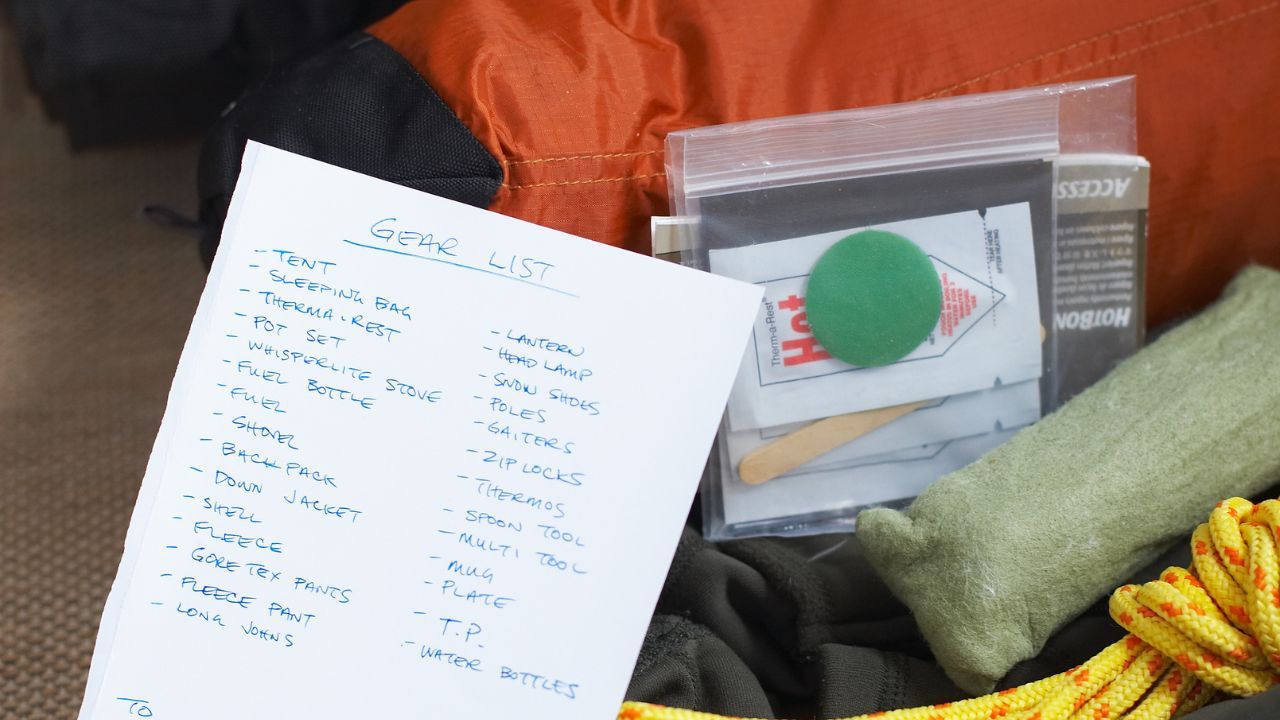
For multi-day backpacking trips, your packing list should include all the items from the day hike list, plus additional gear such as camping equipment, a sleeping bag, and a stove. Ensuring you have all the necessary items for an extended trip will not only make your adventure more enjoyable, but also help you stay safe and comfortable in the great outdoors.

Remember to pack lightweight, durable, and weather-resistant clothing items to keep you comfortable throughout your trip. As always, prioritize comfort, functionality, and safety when selecting your gear, and you'll be well-prepared for any multi-day adventure.
Gear Maintenance and Storage
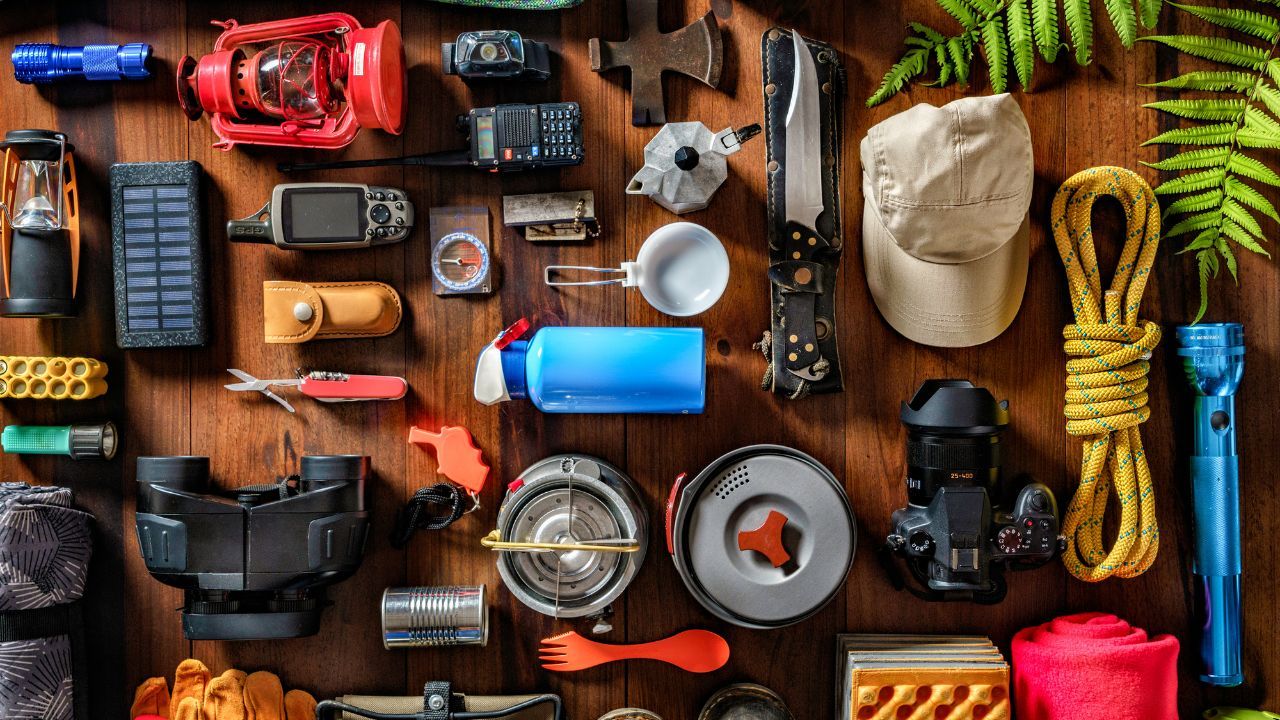
Proper gear maintenance and storage are essential for prolonging the life of your hiking equipment and ensuring it stays in good condition. Keep your gear clean and dry by wiping it down after each use and storing it in a cool, dry place.
Regularly inspect your gear for signs of damage or wear and tear, and rotate items such as trekking poles to prevent corrosion. By taking care of your gear, you'll ensure it remains reliable and ready for your next adventure.
Summary
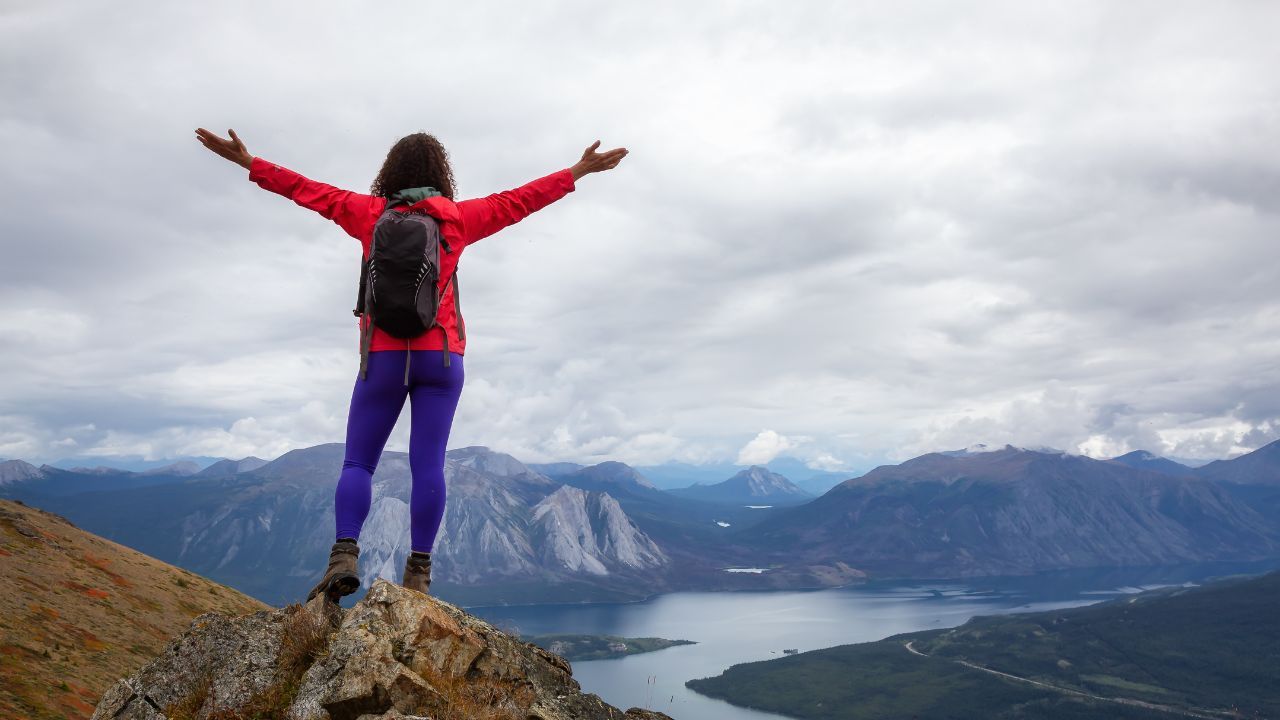
Knowing what to wear hiking is essential for a comfortable and enjoyable outdoor experience. When planning your next adventure, consider the importance of wearing appropriate hiking clothes and footwear, such as hiking shoes or hiking boots. Hiking clothing should be chosen based on the weather and terrain, including options like rain jackets and rain pants for wet conditions.
Don't forget sun protection when deciding what to wear hiking, especially during summer months. Trail running shoes can be a suitable alternative for those preferring a lighter option, while hiking sandals are perfect for warmer climates. By carefully selecting the right hiking apparel, from hiking shoes and hiking boots to versatile hiking clothing, you'll be well-prepared for any trail ahead.
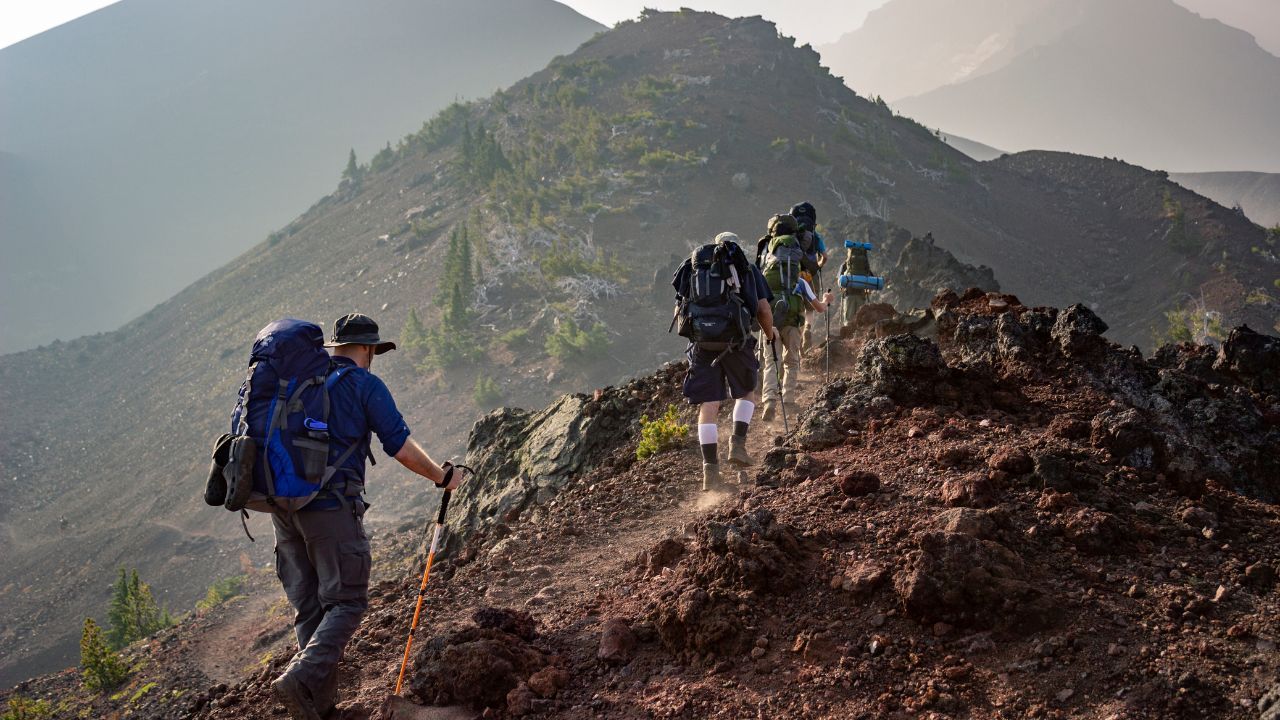
Wear hiking shoes or hiking boots that provide adequate support and protection for your feet. Hiking shoes are typically lighter and more flexible, making them suitable for less demanding trails. In contrast, hiking boots offer more ankle support and are ideal for rougher terrain. When deciding what to wear hiking, consider the specific demands of the trail and your personal preferences.
Rain jackets and rain pants are necessary additions to your hiking clothing collection, especially if you expect wet weather during your hike. These items will keep you dry and comfortable, allowing you to focus on the adventure ahead. For those who prefer a lighter option, trail running shoes can be an excellent alternative to traditional hiking shoes or hiking boots.

When planning your next outdoor adventure, it's crucial to know what to wear hiking. The right hiking clothes can make all the difference in your comfort and enjoyment on the trail. Hiking clothing should be selected based on the weather conditions you'll face and the type of terrain you'll encounter. It's essential to have a variety of hiking clothes to suit different situations, including warmer layers for cold days and lightweight options for warmer temperatures.
In summer months, it's essential to choose hiking clothes that provide sun protection and moisture-wicking properties. Wear hiking clothes made from breathable materials to keep you cool and comfortable on the trail. Don't forget to wear hiking boots or shoes that offer adequate ventilation and support, ensuring your feet stay protected and comfortable throughout your hike.
From layering essentials to seasonal attire, footwear, and accessories, choosing the right hiking apparel can greatly enhance your experience on the trail. By understanding the various options and selecting the best clothing and gear for your needs, you'll be well-prepared to tackle any hike, no matter the season or terrain. So gear up, hit the trail, and enjoy the great outdoors in comfort and style.

Frequently Asked Questions
What should I wear for beginner hiking?
When beginning a new outdoor activity like hiking, it's important to have the right apparel. Start by wearing a moisture-wicking base layer topped with an insulating mid layer and a waterproof outer shell.
This will ensure you're well-prepared for any type of weather conditions.
What can I wear instead of hiking pants?
You can wear athletic shorts, quick-drying fabrics such as spandex or nylon, convertible zip-off pants, and/or hiking leggings instead of traditional hiking pants.
Be sure to avoid wearing cotton on the trail, as it does not dry quickly.
Can I wear jeans hiking?
Generally speaking, wearing jeans while going for a hike is not recommended. It can be uncomfortable and lead to unnecessary risks.
However, if you find yourself more comfortable wearing jeans, it is perfectly acceptable to wear them while hiking.
What is the best outfit to wear when hiking?
The best outfit for hiking is one that is made of breathable, wicking materials such as synthetic fabrics or merino wool, and includes pants, a top layer, and either sandals, sneakers or hiking boots. It's always best to wear a hiking shoe. Also, choose lighter colors to help keep you cool on hot days. Make sure to bring along a midlayer in case the temperature drops.
What to wear hiking in summer?
When hiking in summer, it's essential to choose clothing and gear that provide sun protection, breathability, and moisture-wicking properties. Here are some items to consider wearing:
- Lightweight, moisture-wicking clothing: Opt for clothes made from breathable materials like polyester or merino wool that wick away sweat and dry quickly. This will help keep you cool and comfortable during your hike.
- Sun protection: Wear a wide-brimmed hat, sunglasses, and lightweight long sleeves and pants to protect your skin from the sun's harmful rays. Don't forget to apply sunscreen with a high SPF to any exposed skin.
- Hiking shoes or sandals: Choose well-ventilated hiking shoes or hiking sandals with good traction and support. This will keep your feet cool and comfortable on hot summer hikes.
- Thin, moisture-wicking socks: Opt for socks made from materials that wick away moisture, such as synthetic or wool blends, to prevent blisters and keep your feet dry.
- Hydration: Carry a water bottle or hydration pack to stay hydrated throughout your hike. Drink plenty of water before, during, and after your hike to avoid dehydration.
- Lightweight backpack: Choose a backpack with a ventilated back panel to minimize sweating and discomfort during your summer hikes.
- Insect repellent: Apply insect repellent to protect yourself from mosquitoes, ticks, and other insects that are more active during the summer months.
Rain gear: Summer weather can be unpredictable, so pack a lightweight rain jacket and/or rain pants in case of sudden showers.
By wearing appropriate clothing and gear for summer hiking, you can stay cool, comfortable, and protected while enjoying the great outdoors.
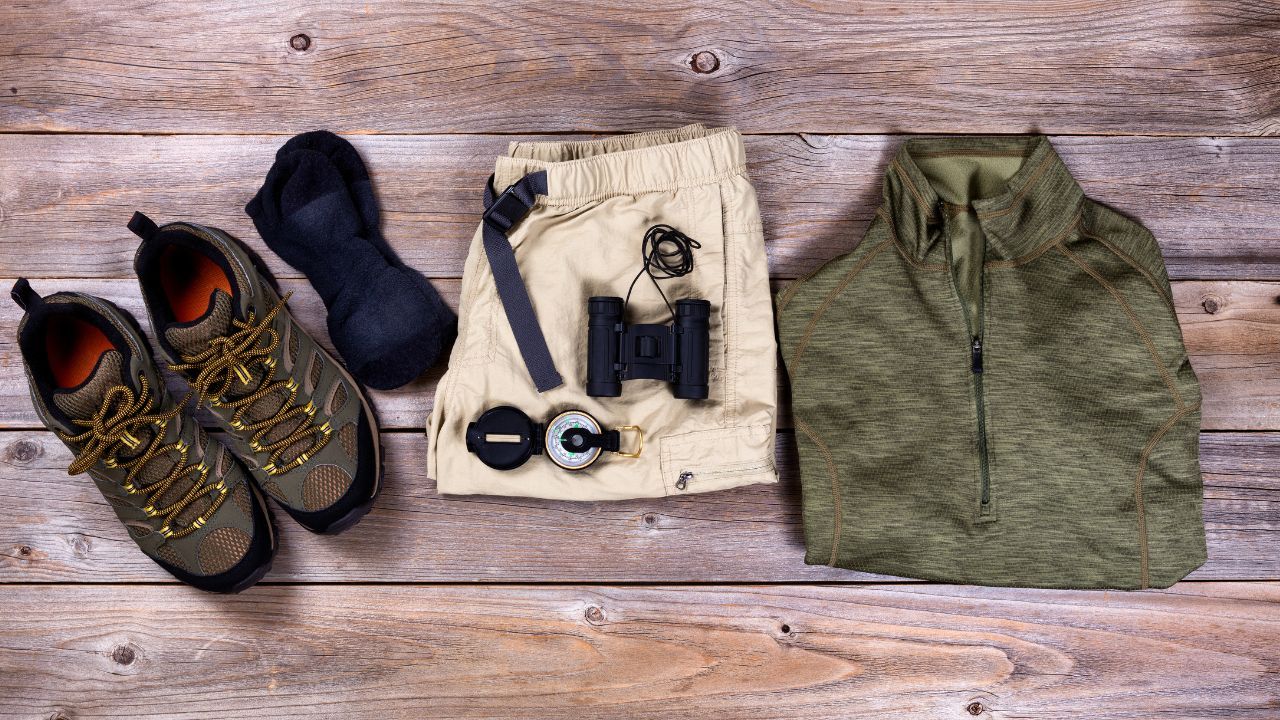
With detailed and rigorous research, we provide our readers with the finest recommendations. Our recommendations are our opinions. Our cause is backed by reader support- for every click made through one of our affiliates links, a commission may be earned at no extra expense to you! As an Amazon Associate, Reviewsopedia may earn a commission from qualifying purchases. Thank you and enjoy!
Other Helpful Articles
